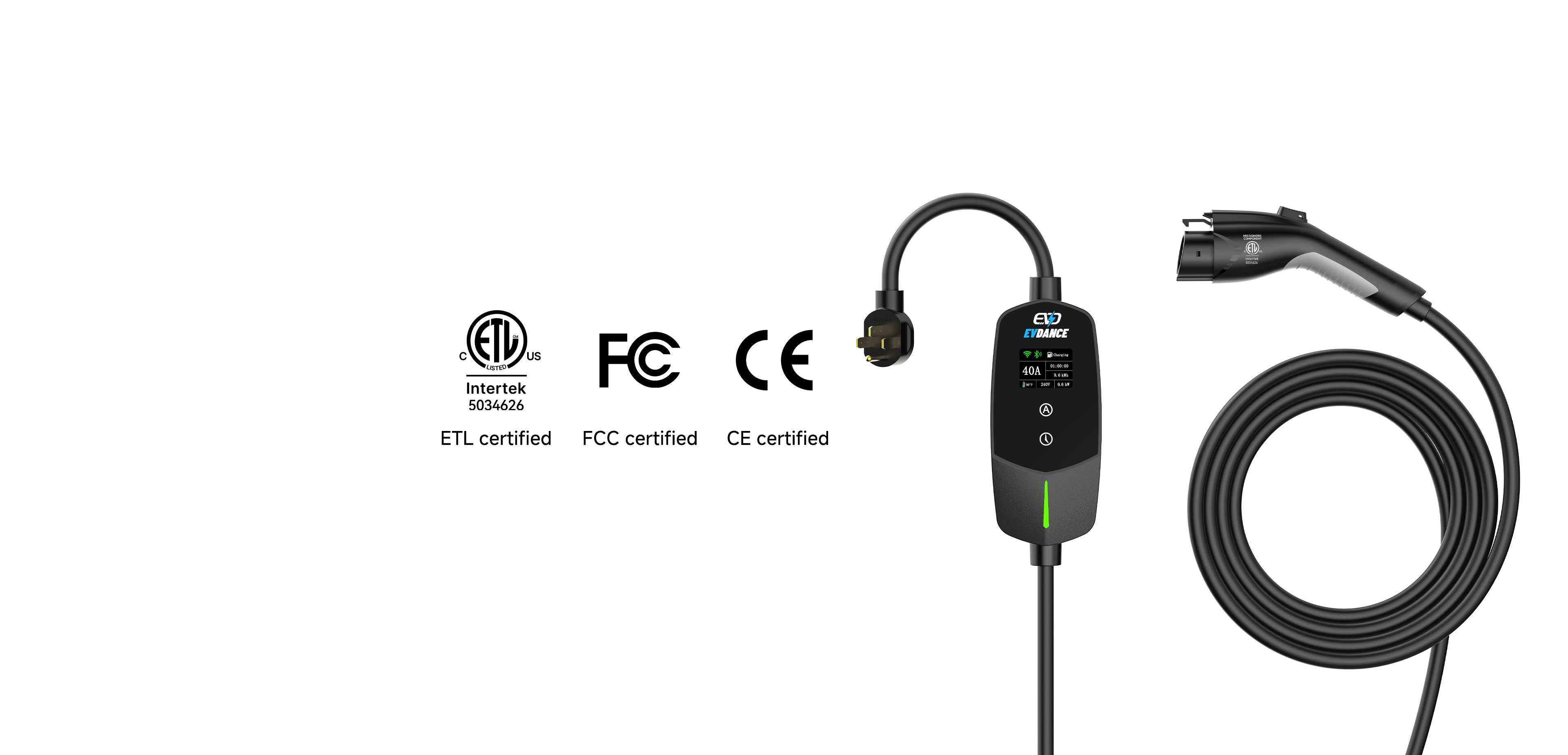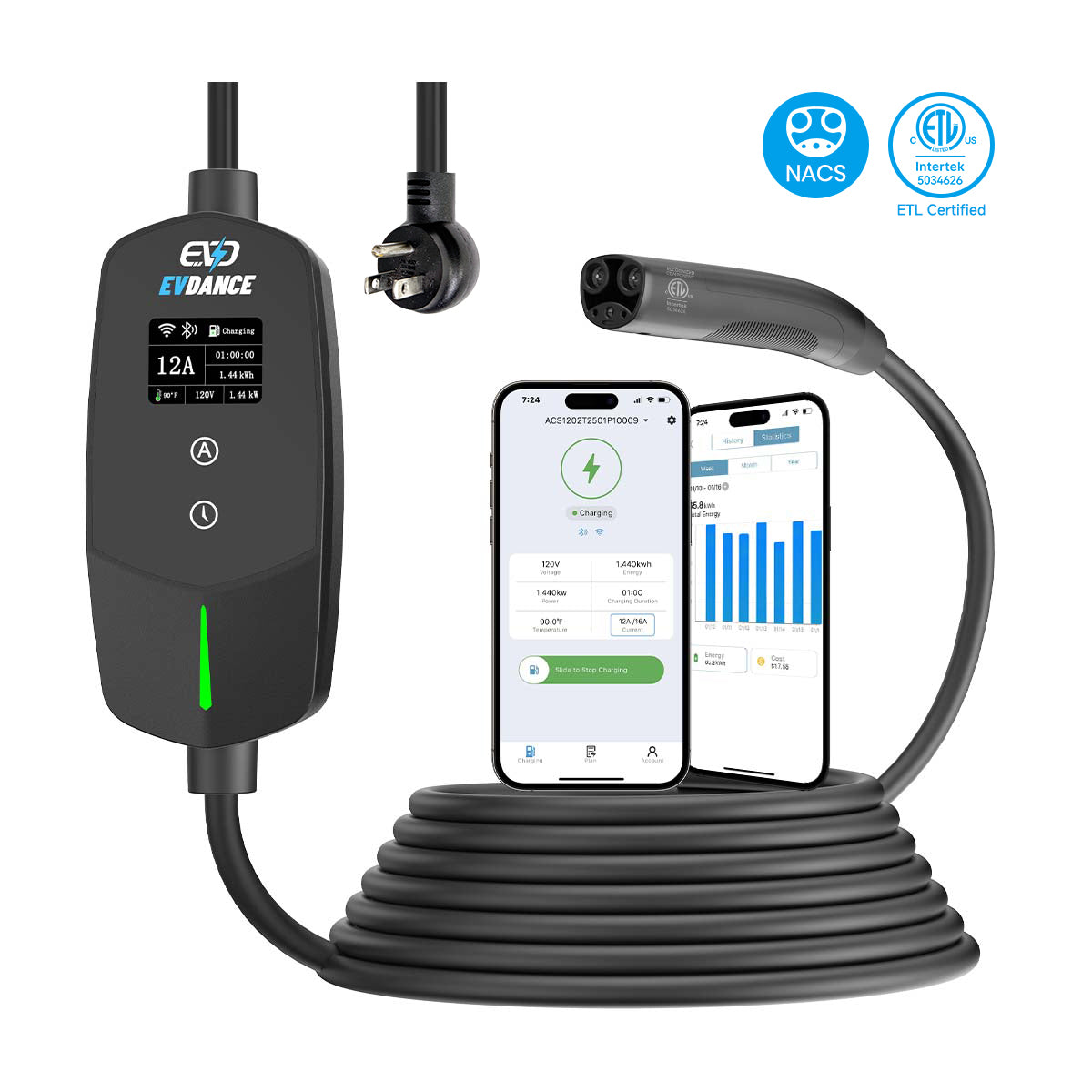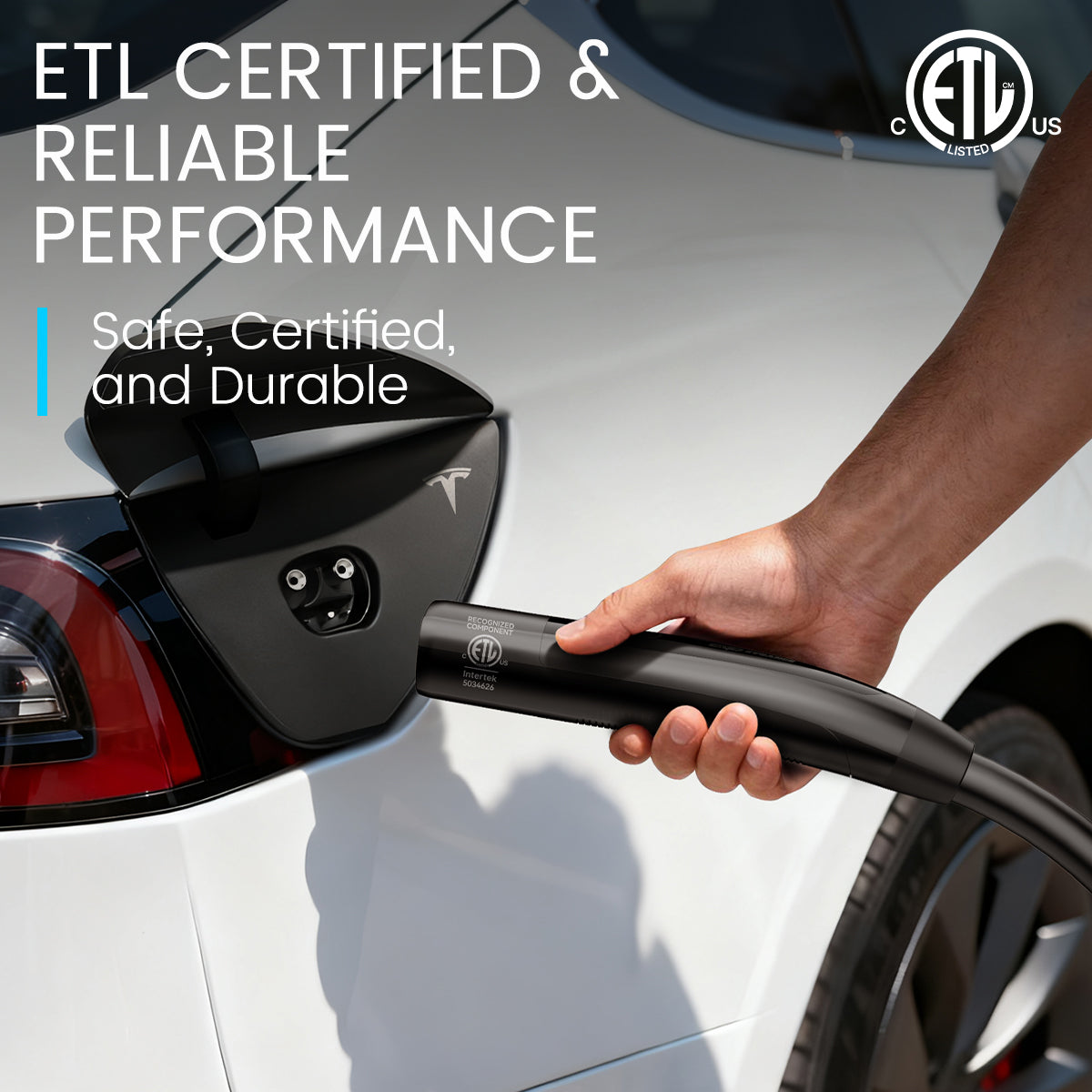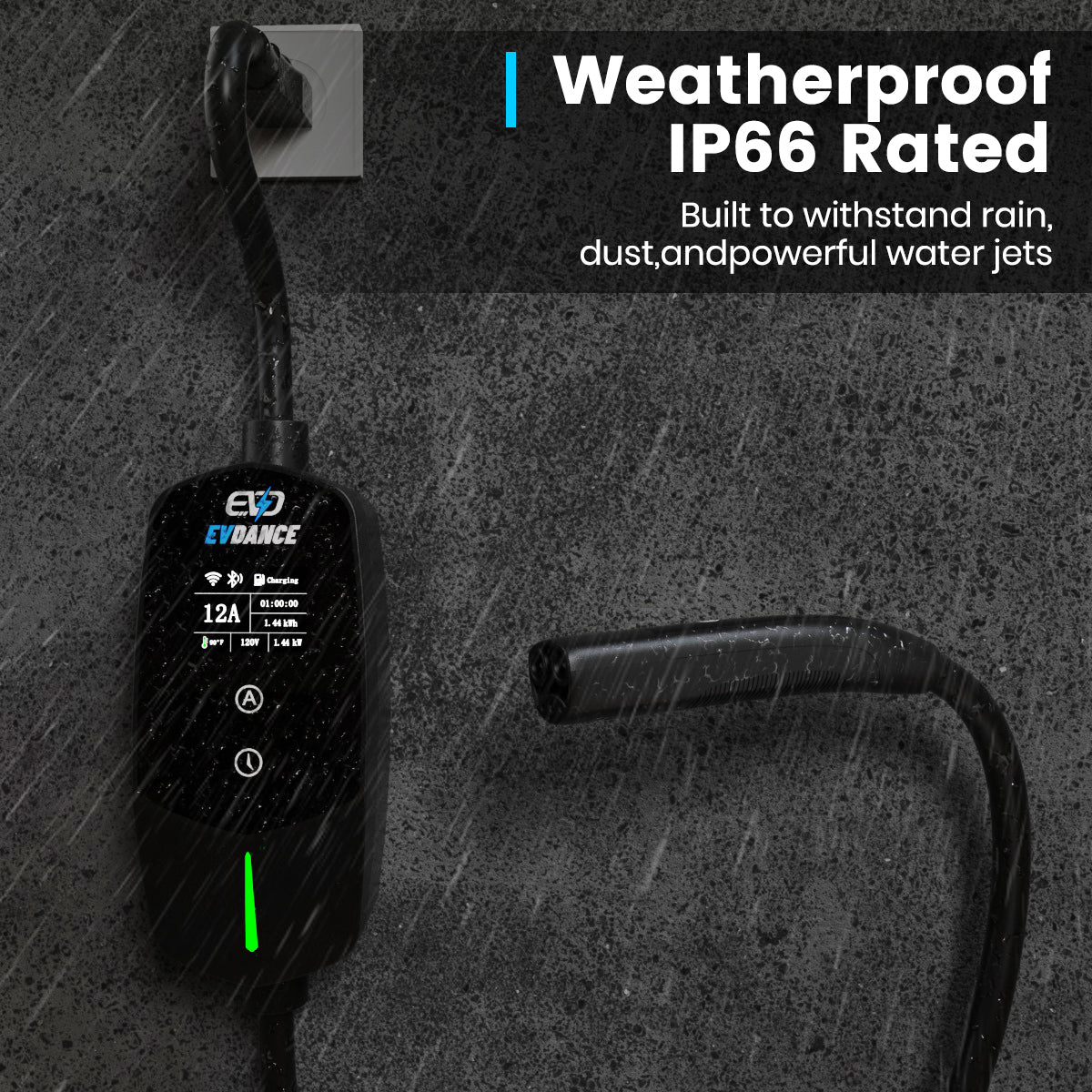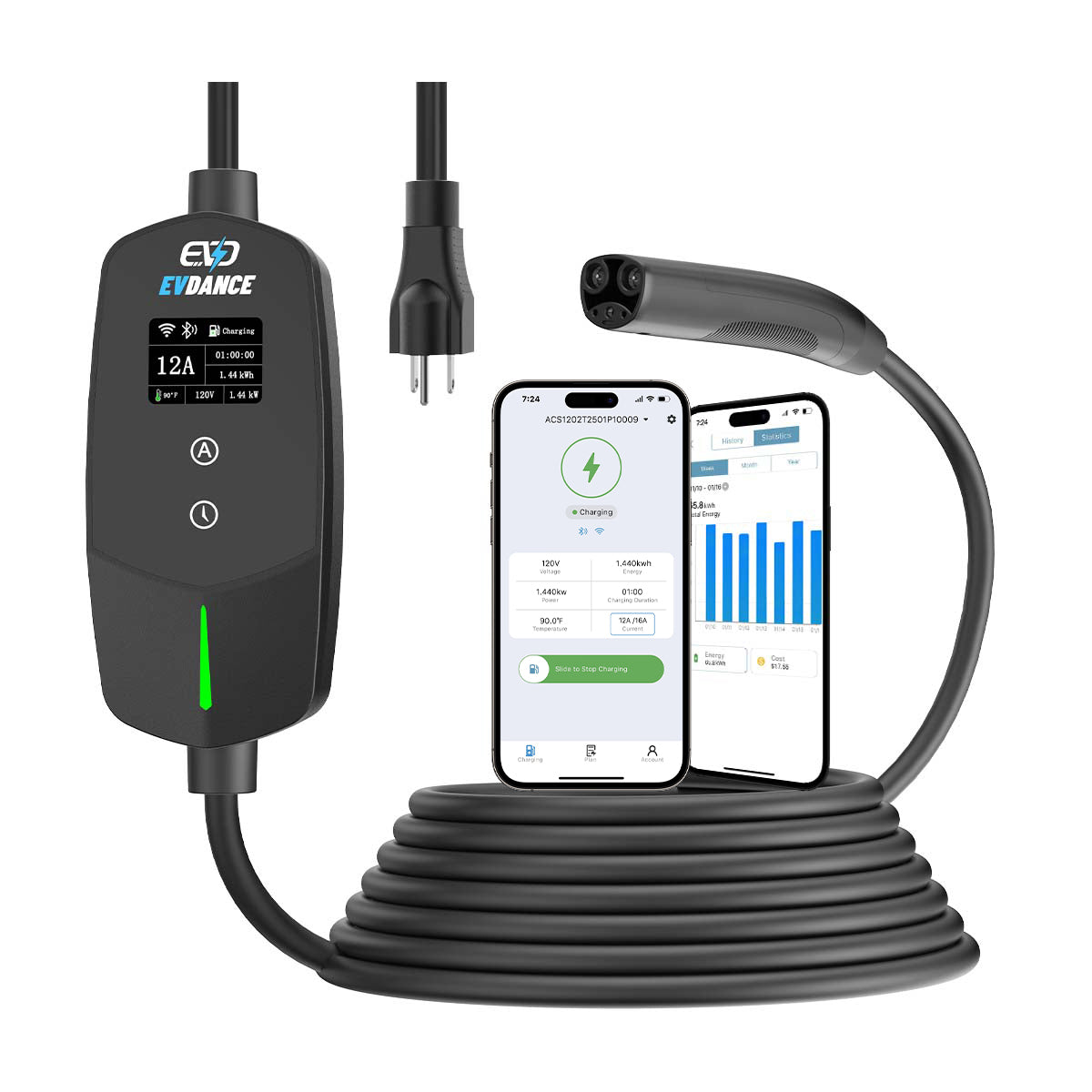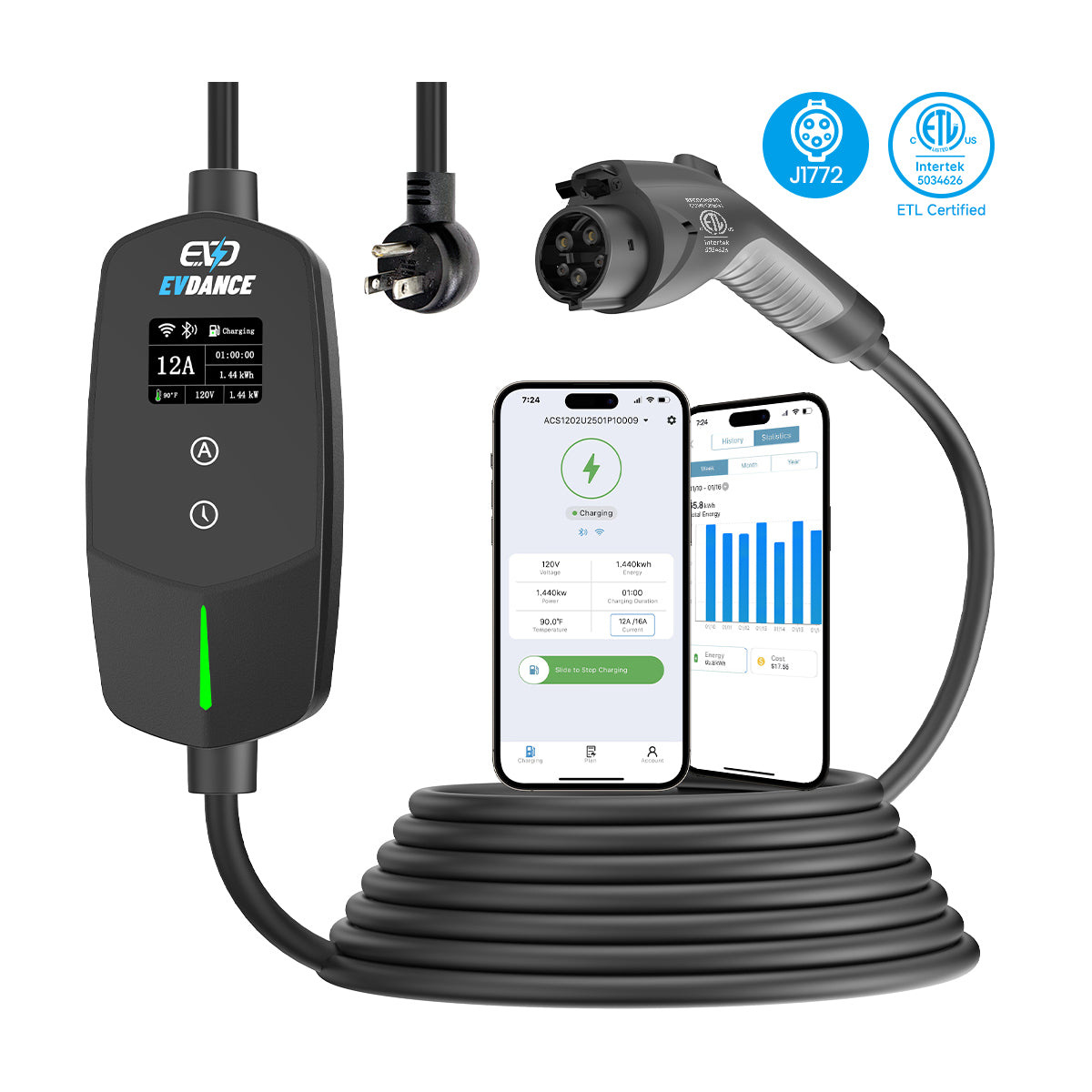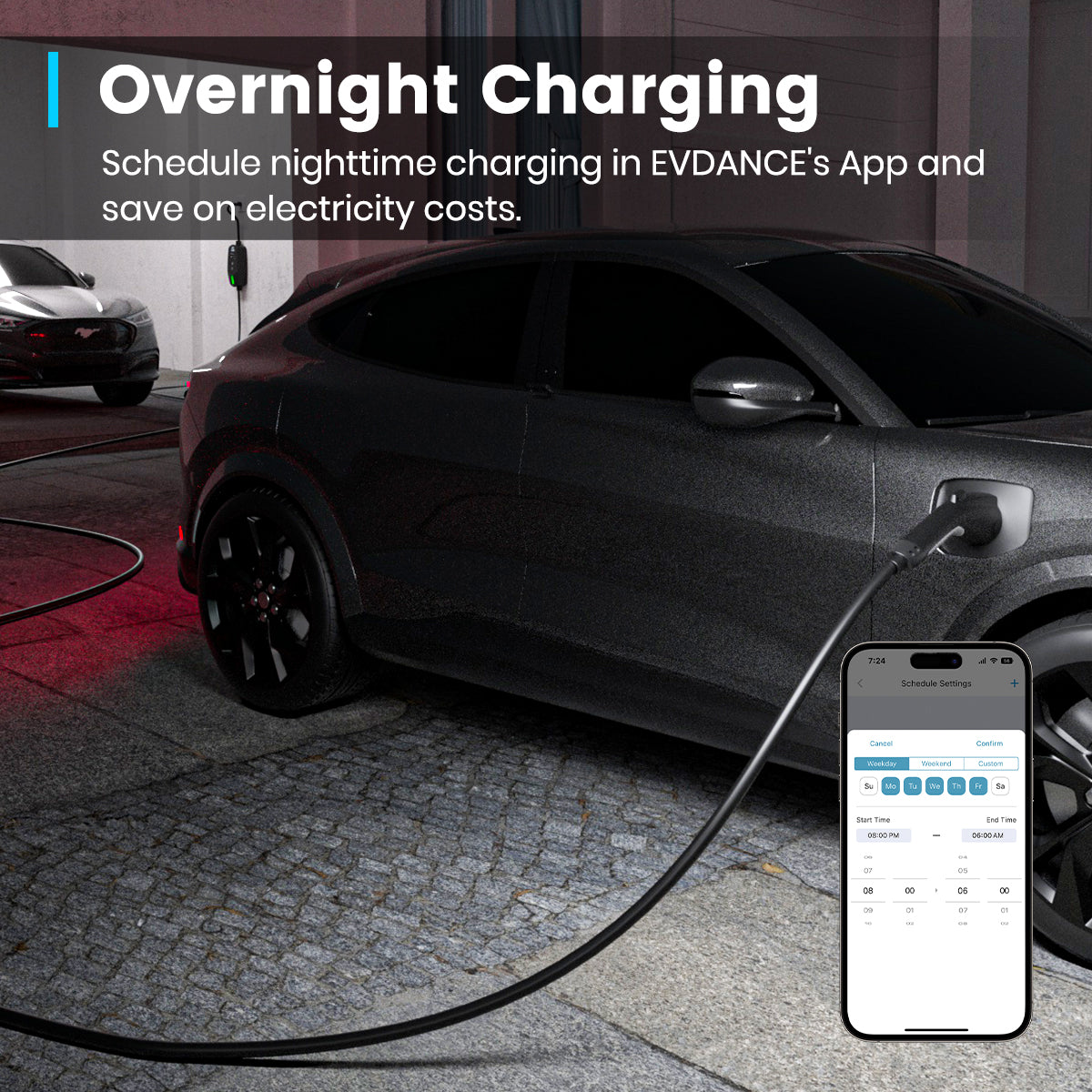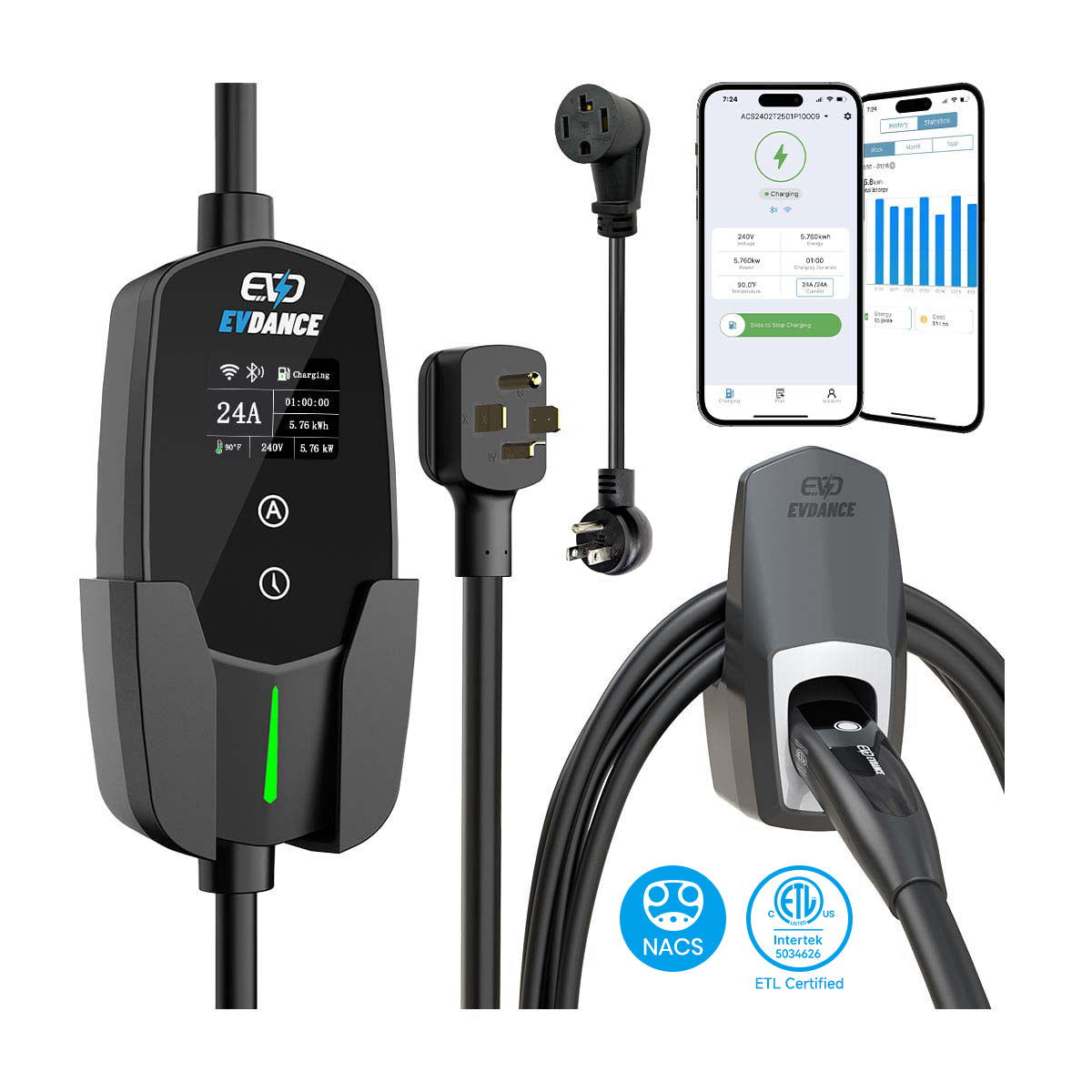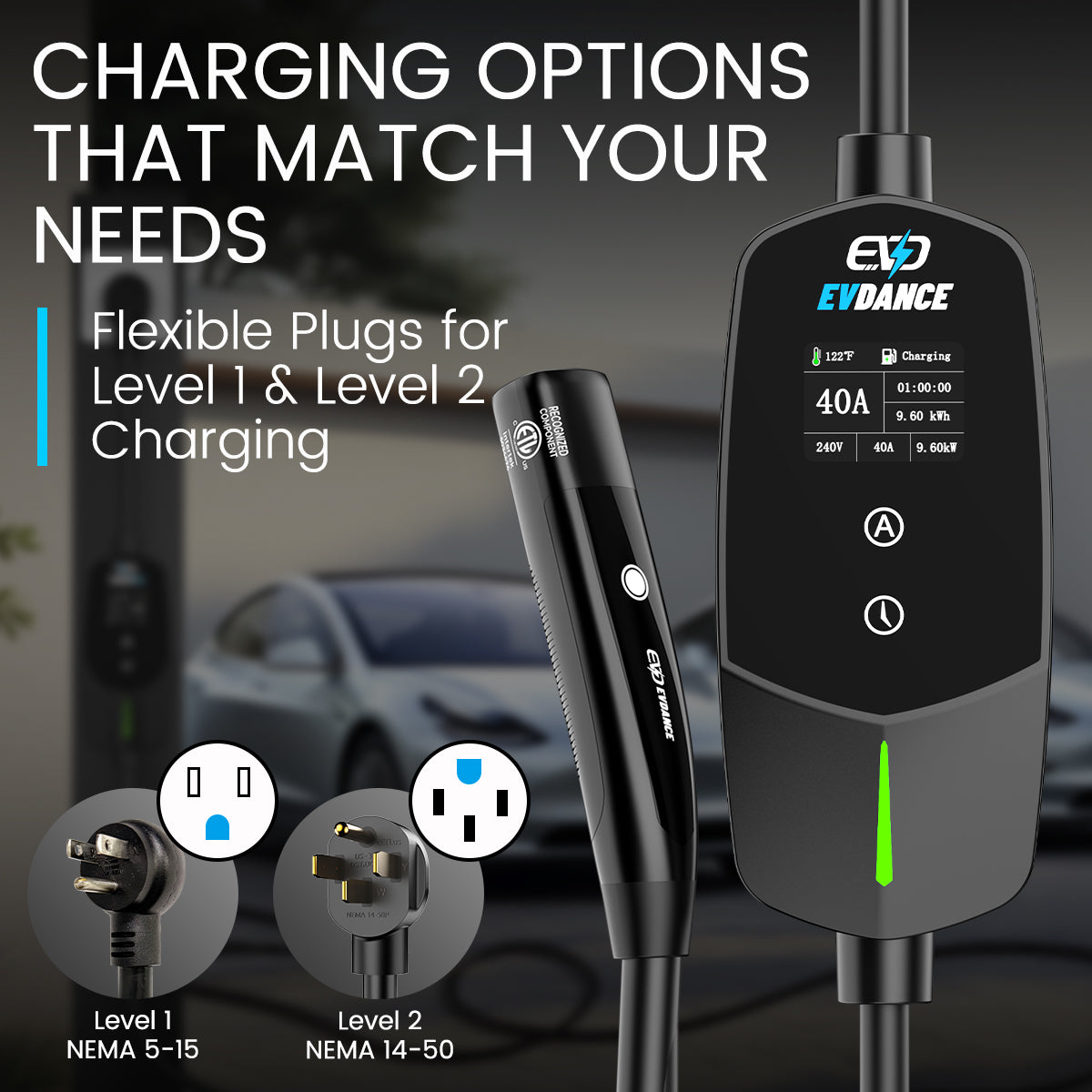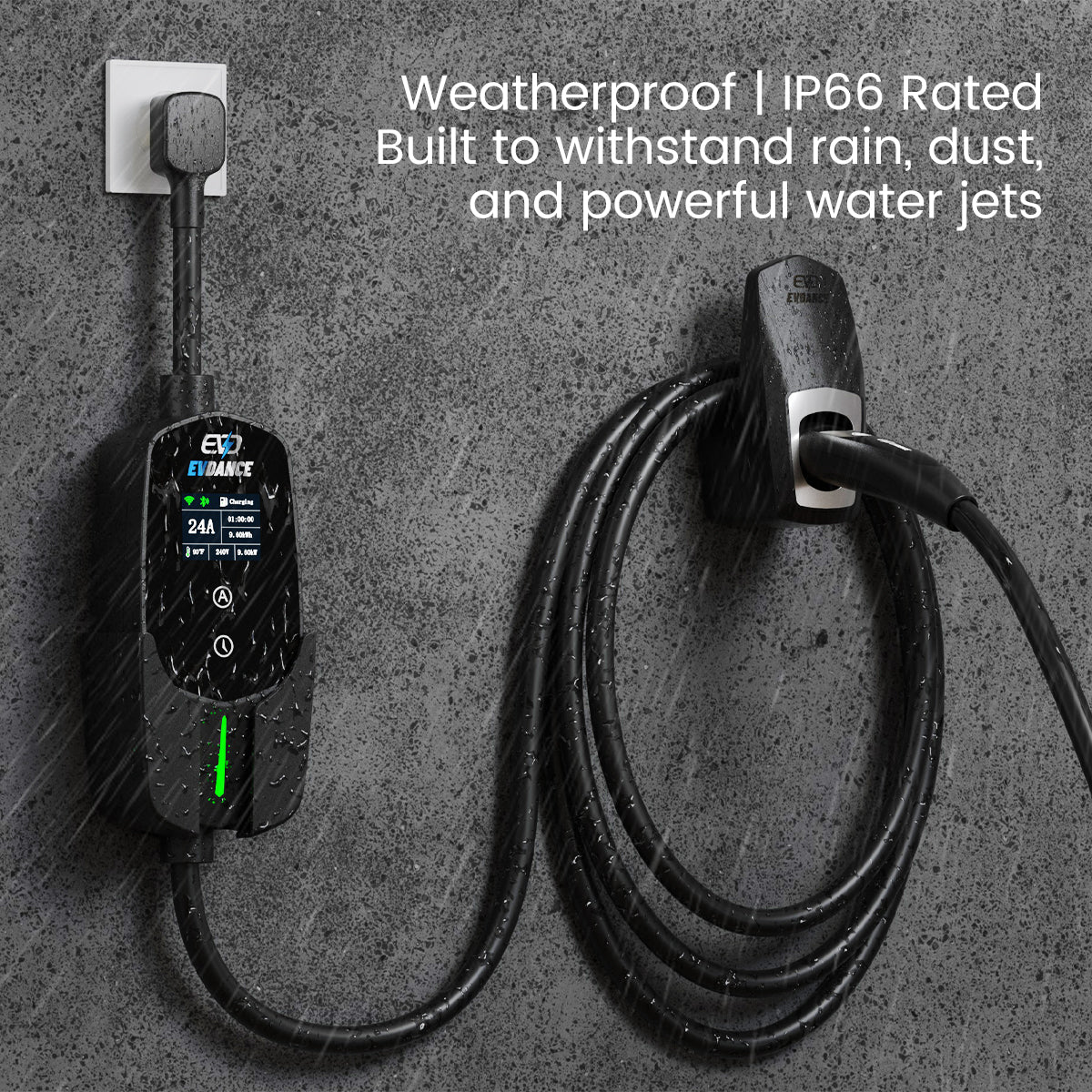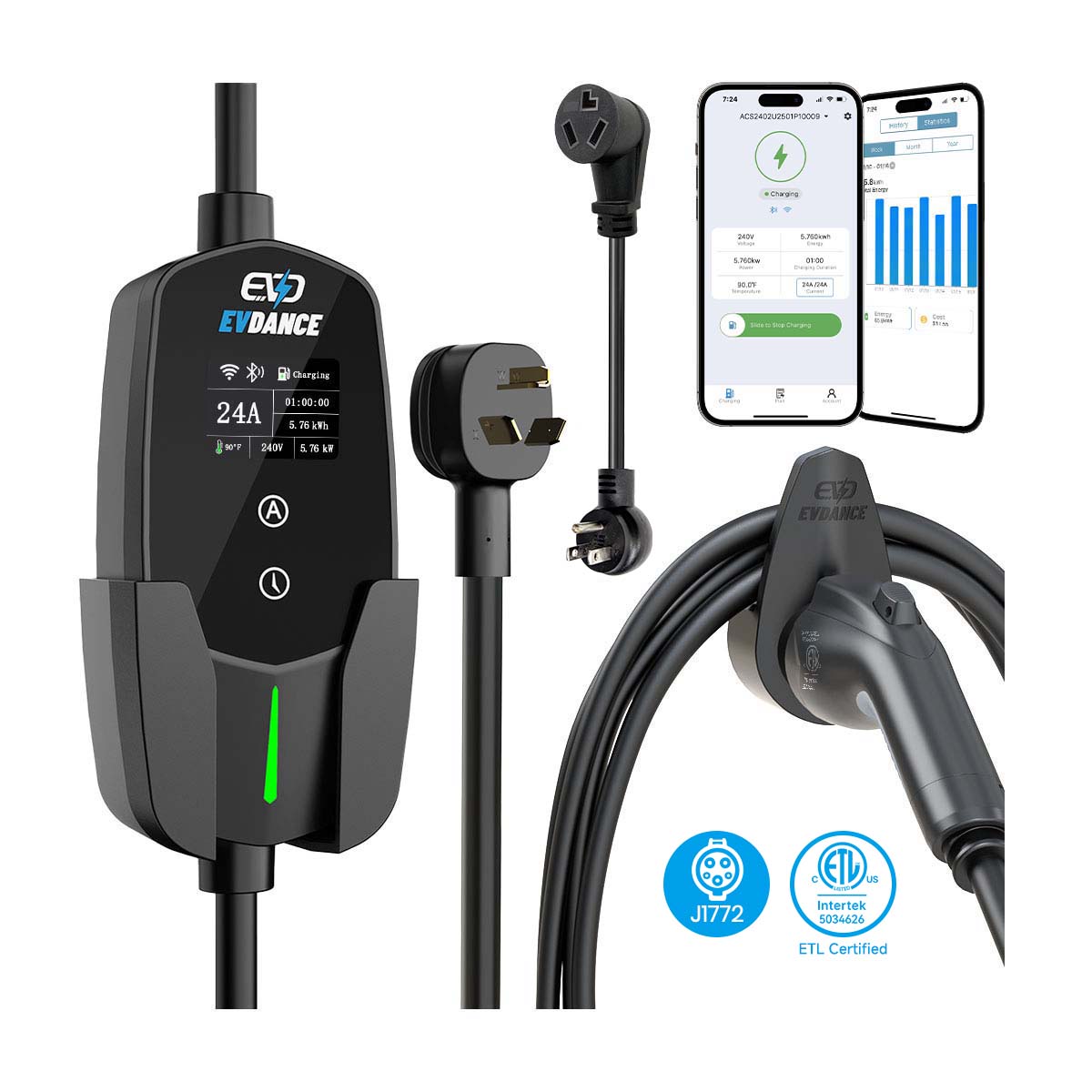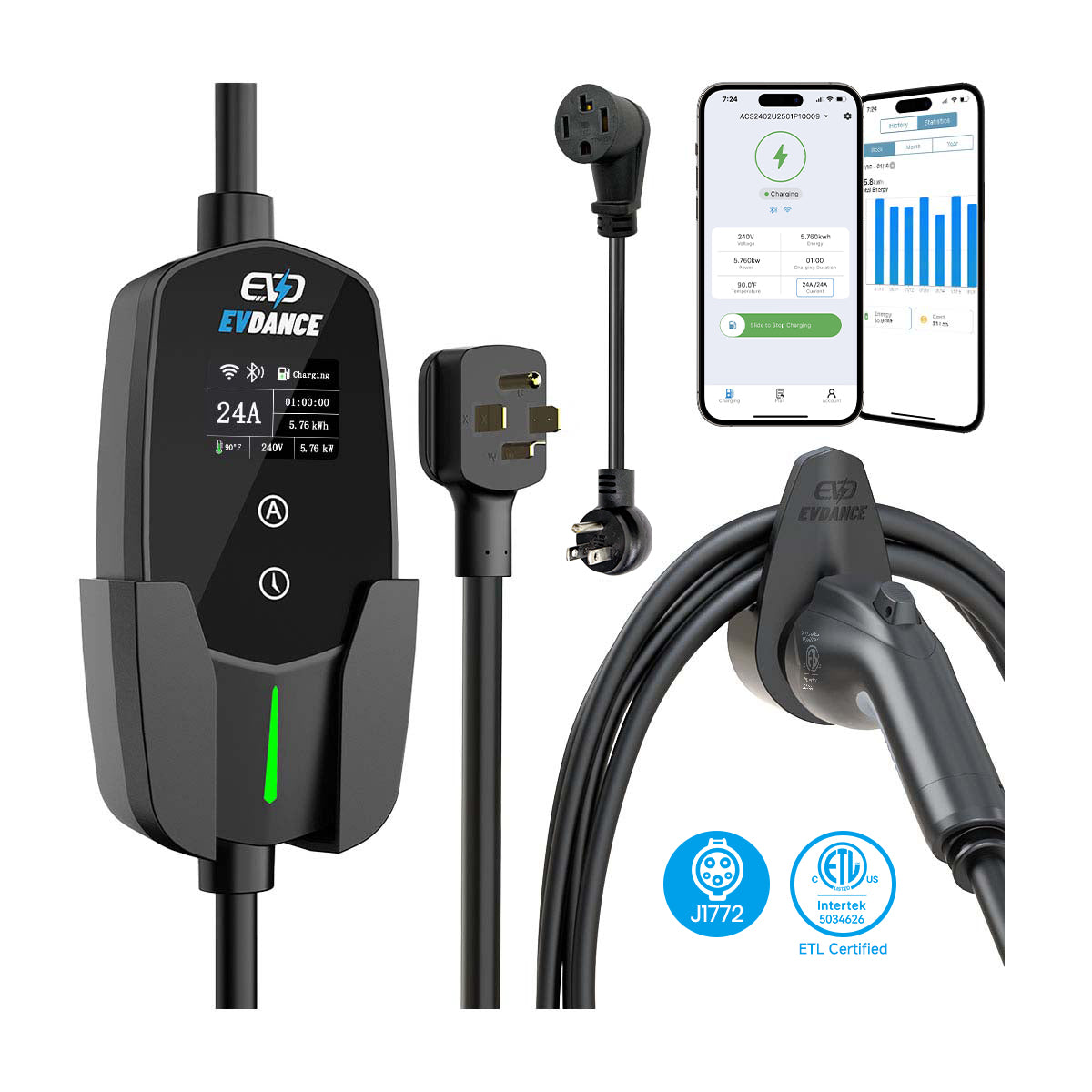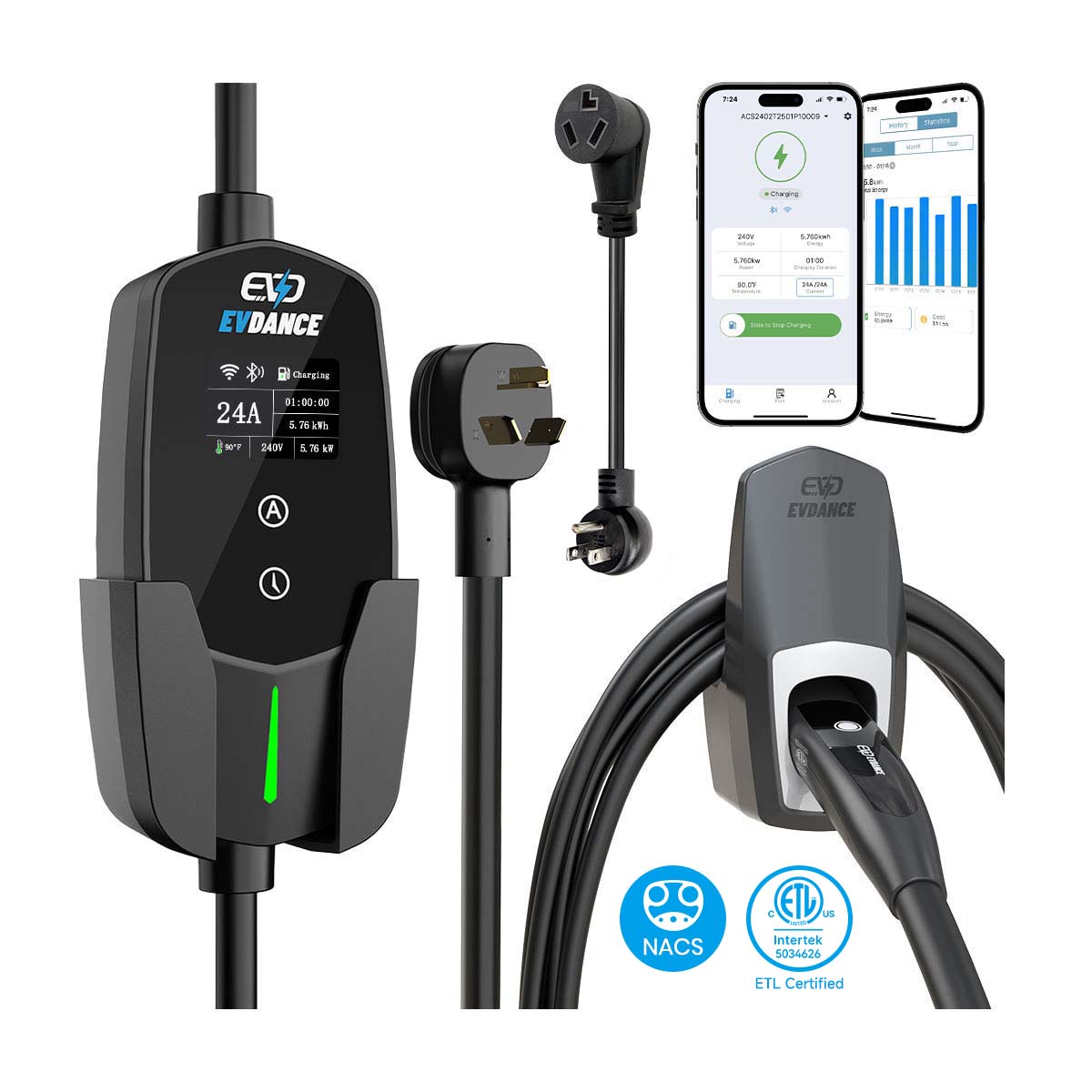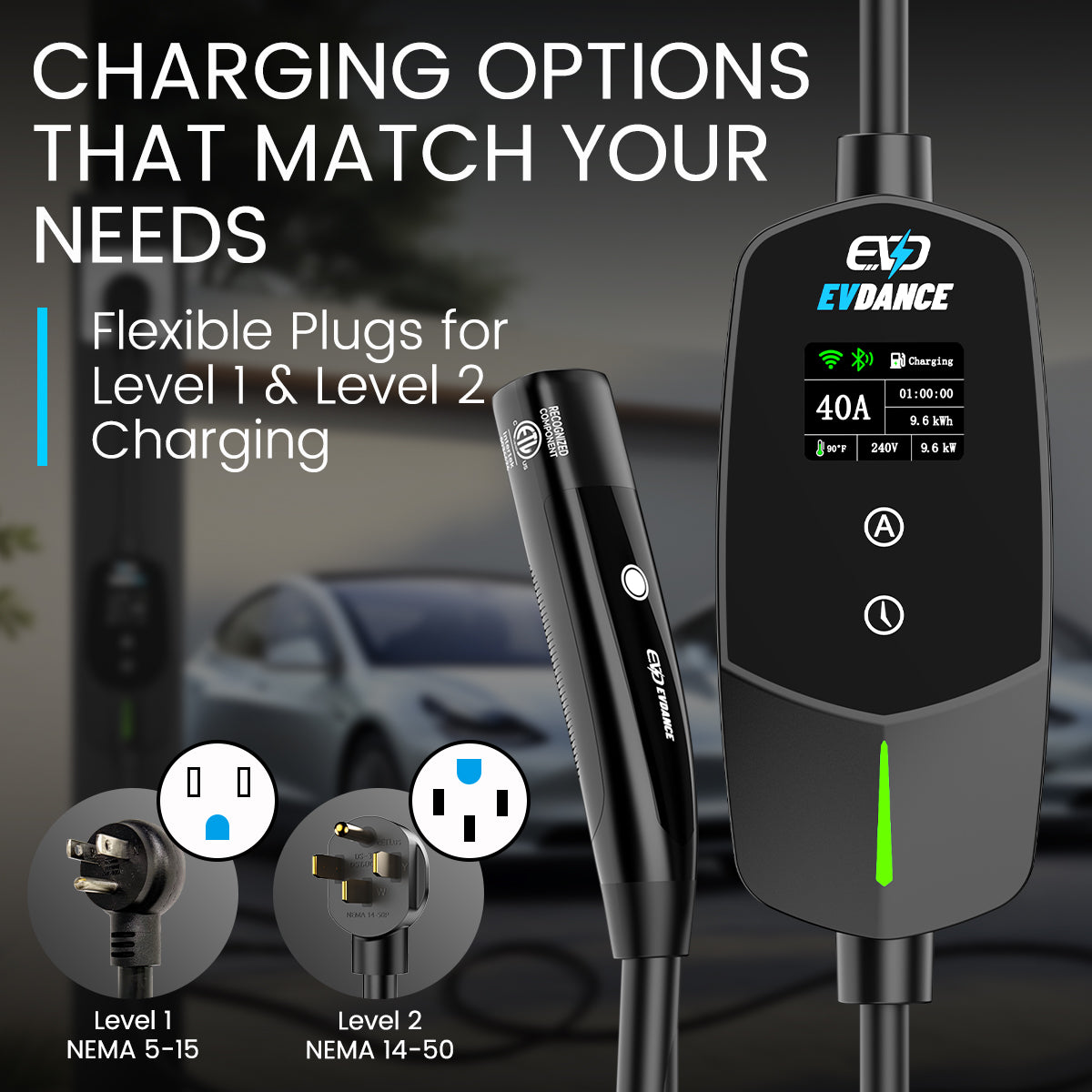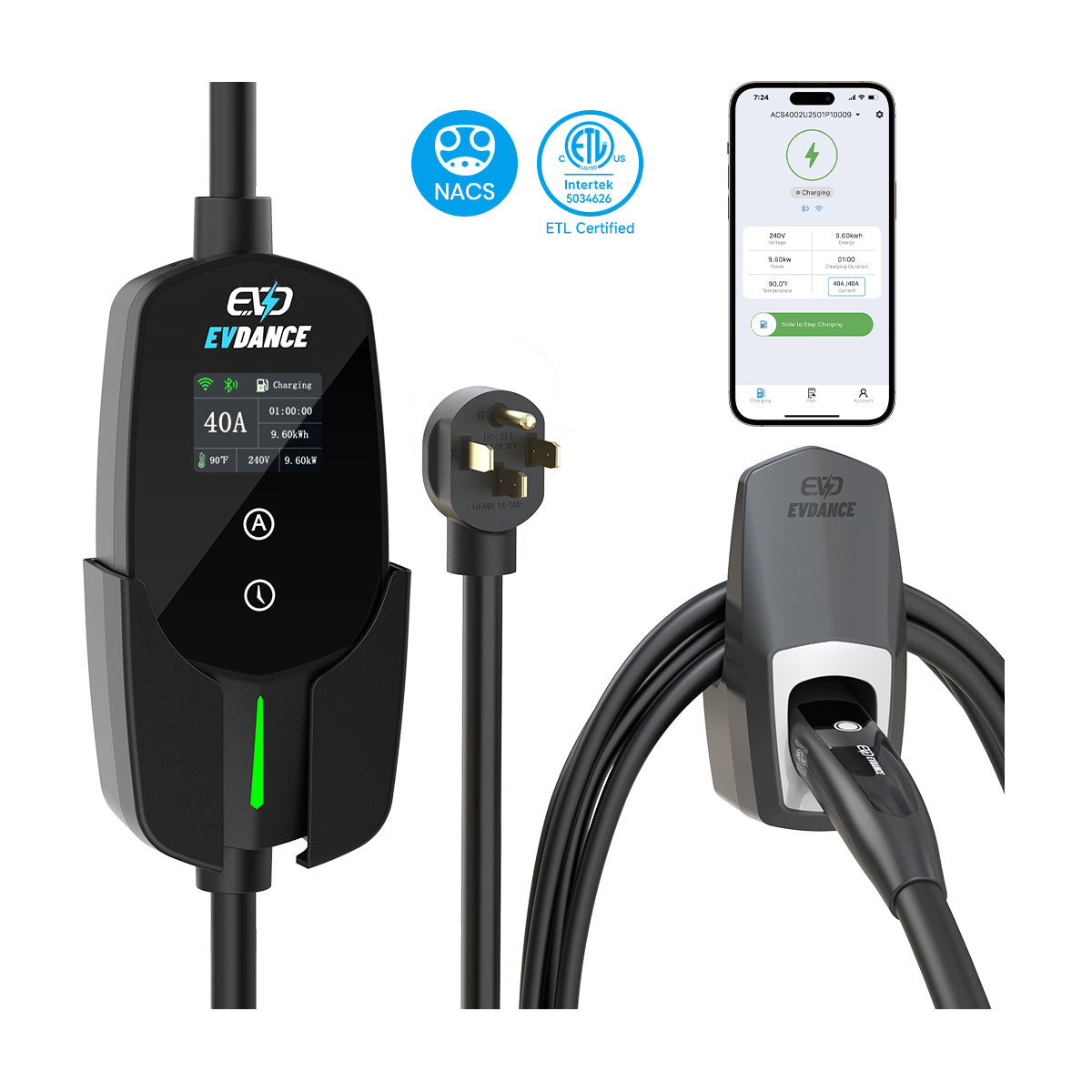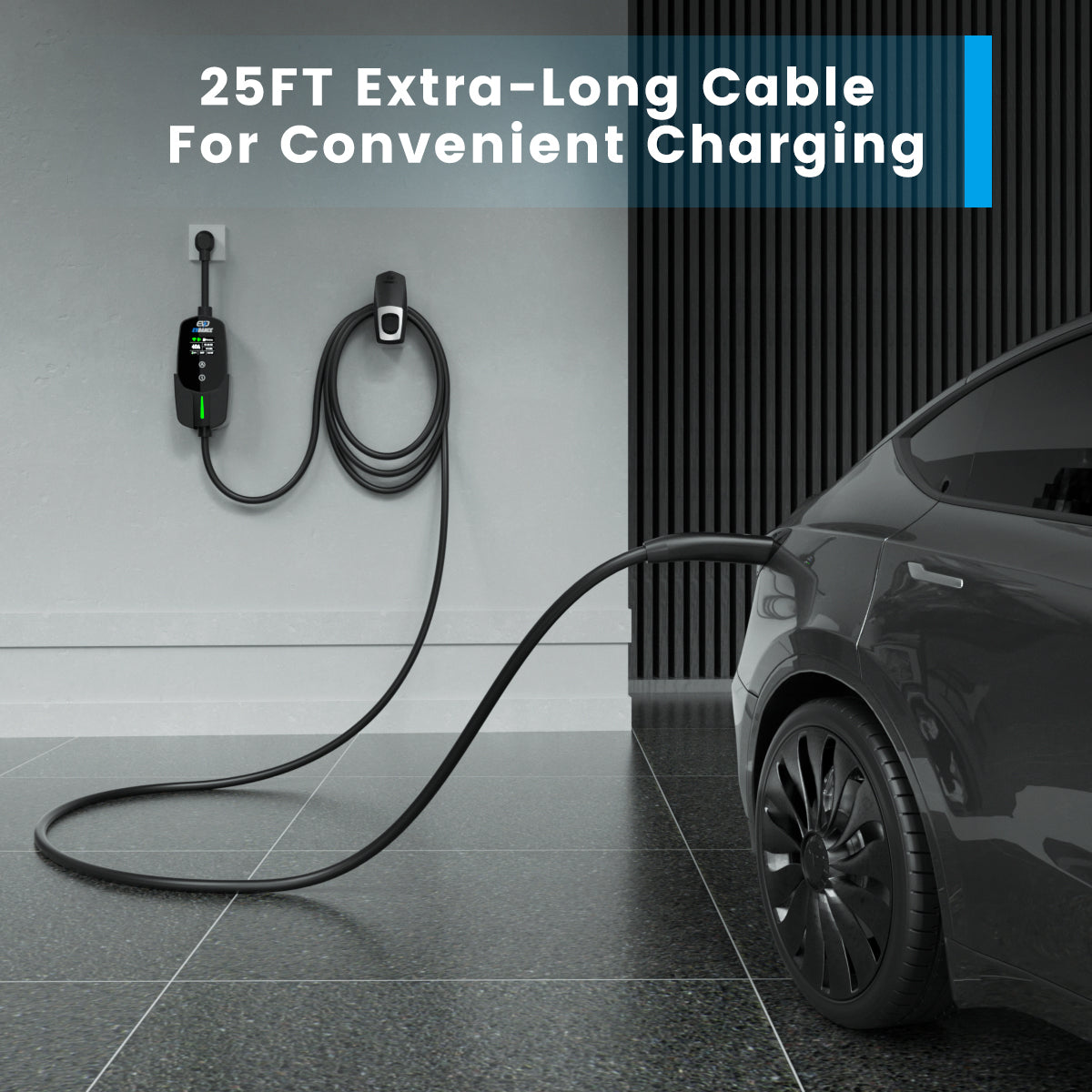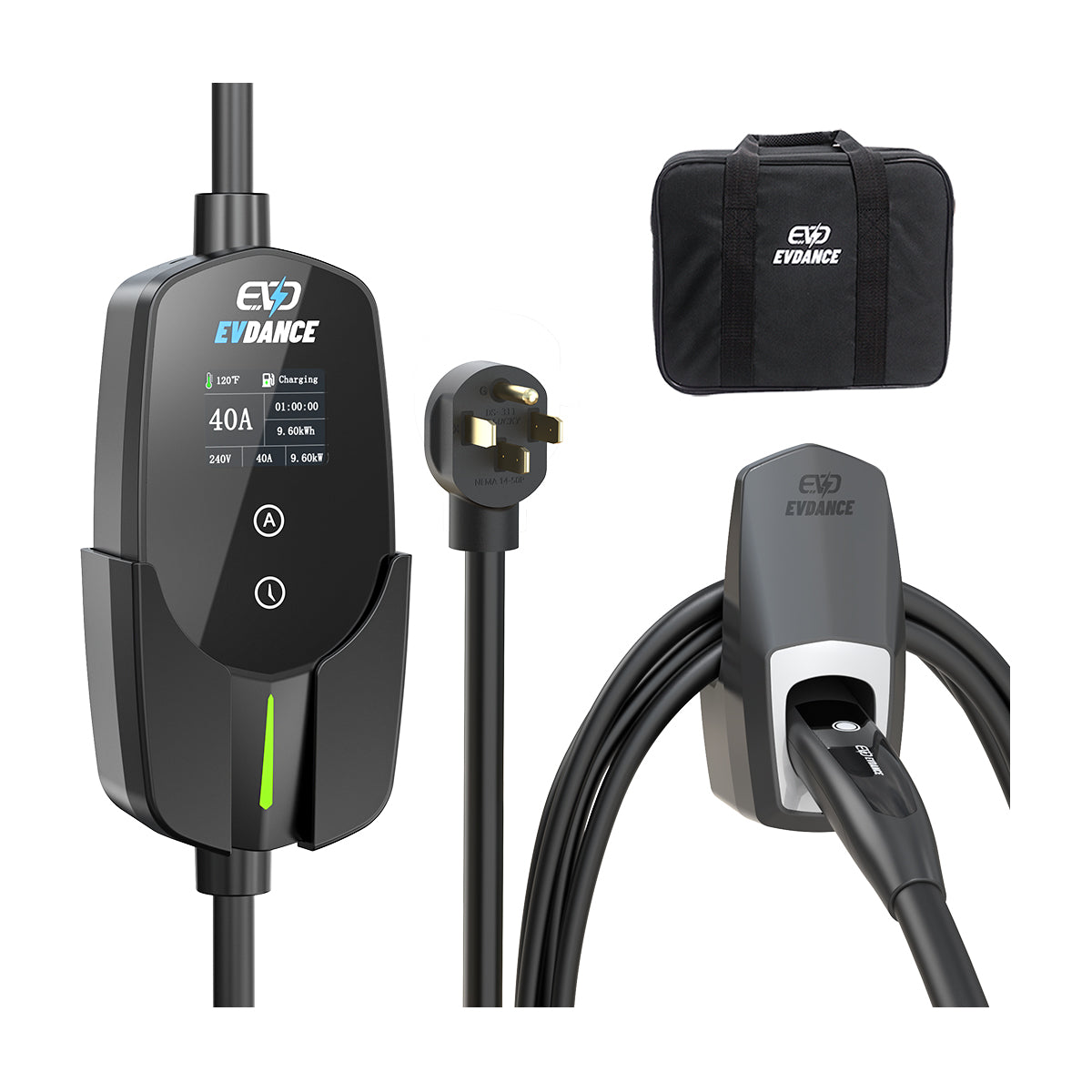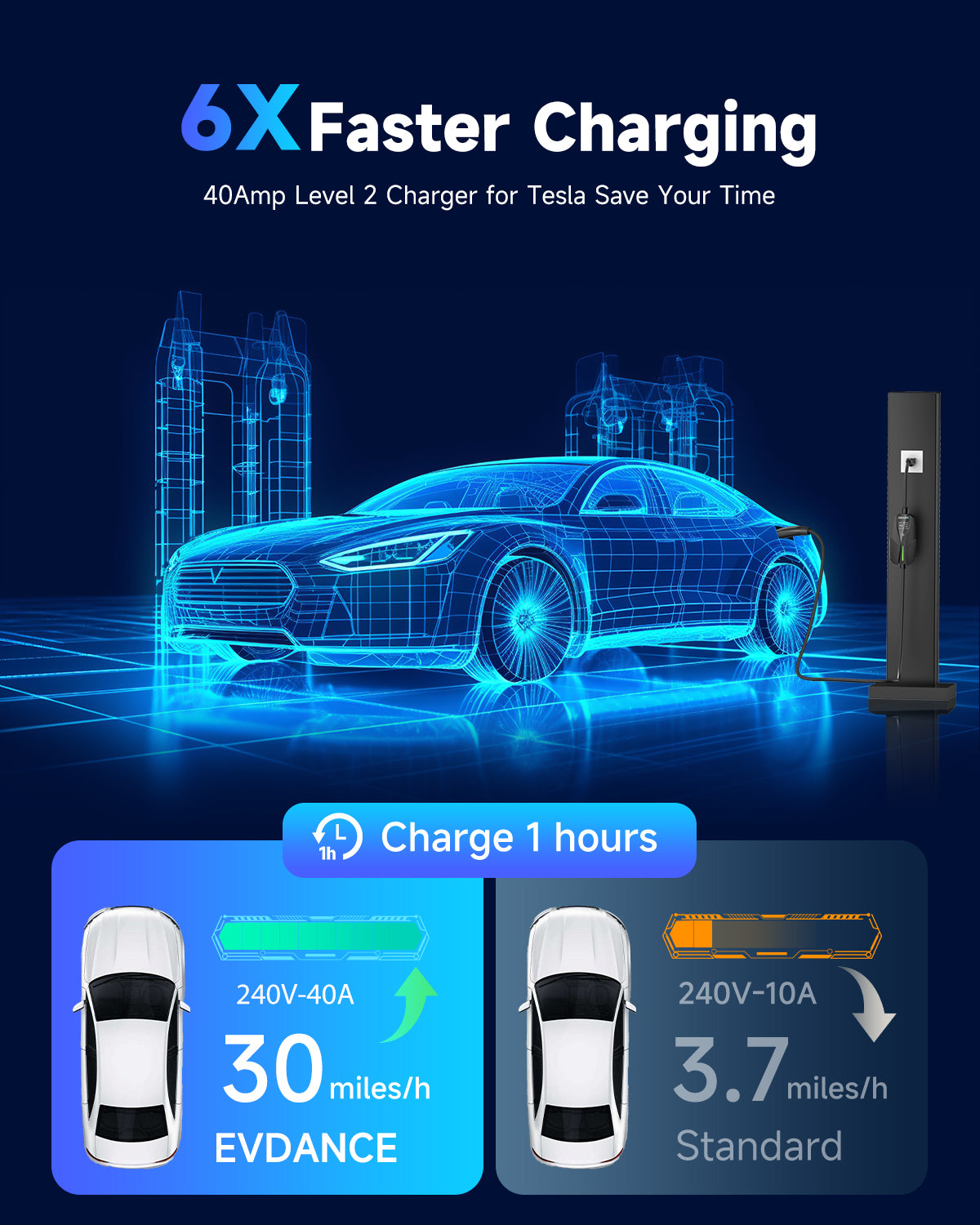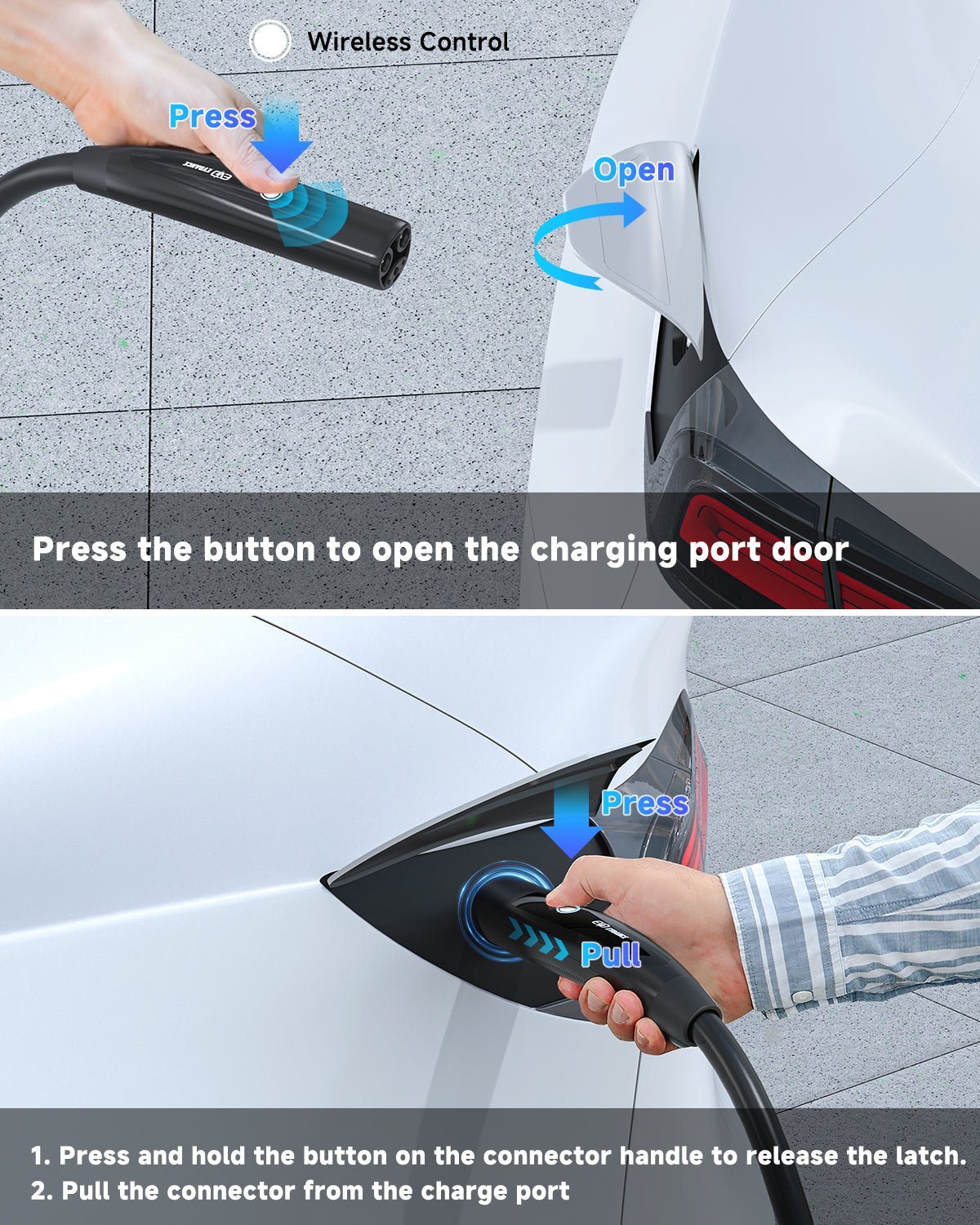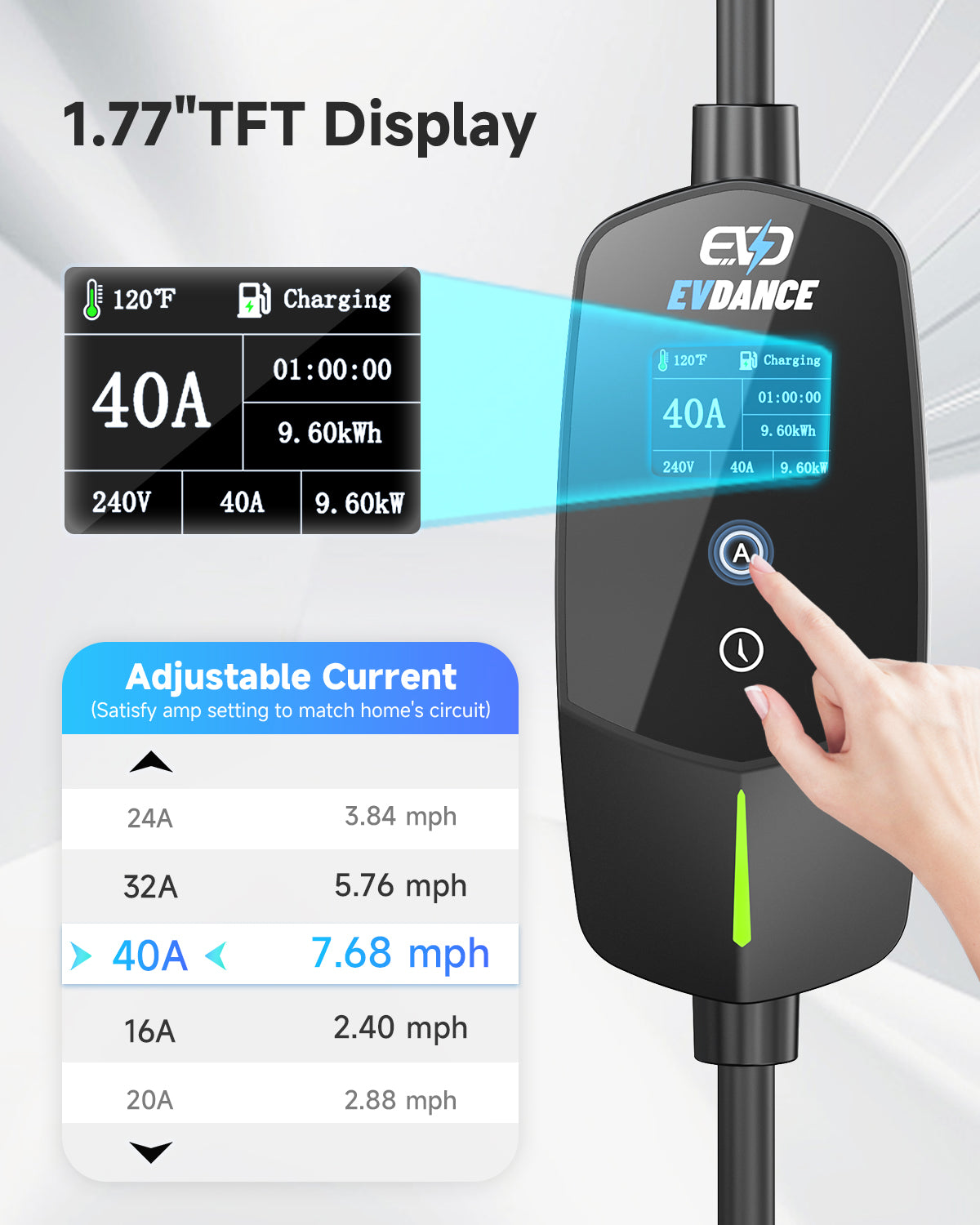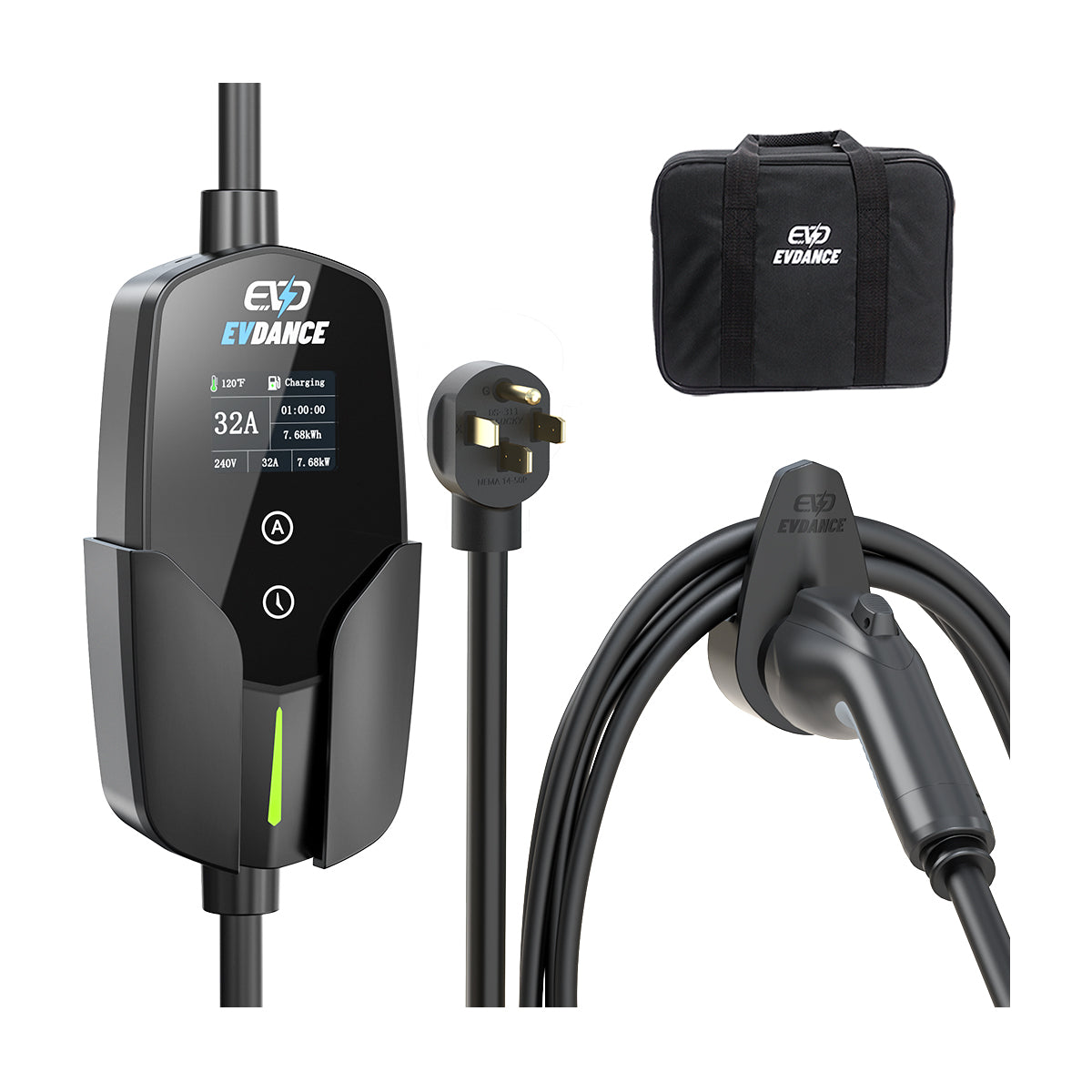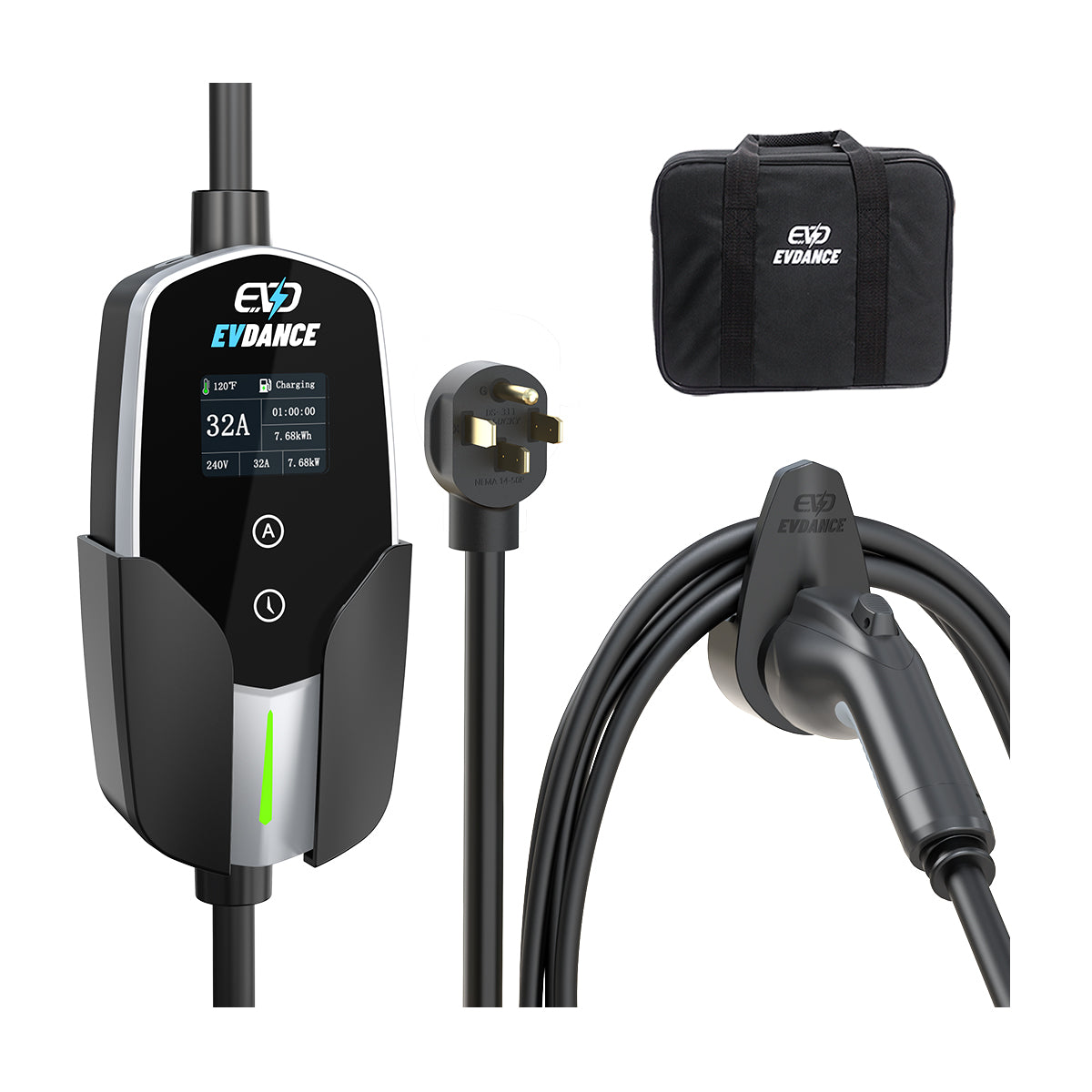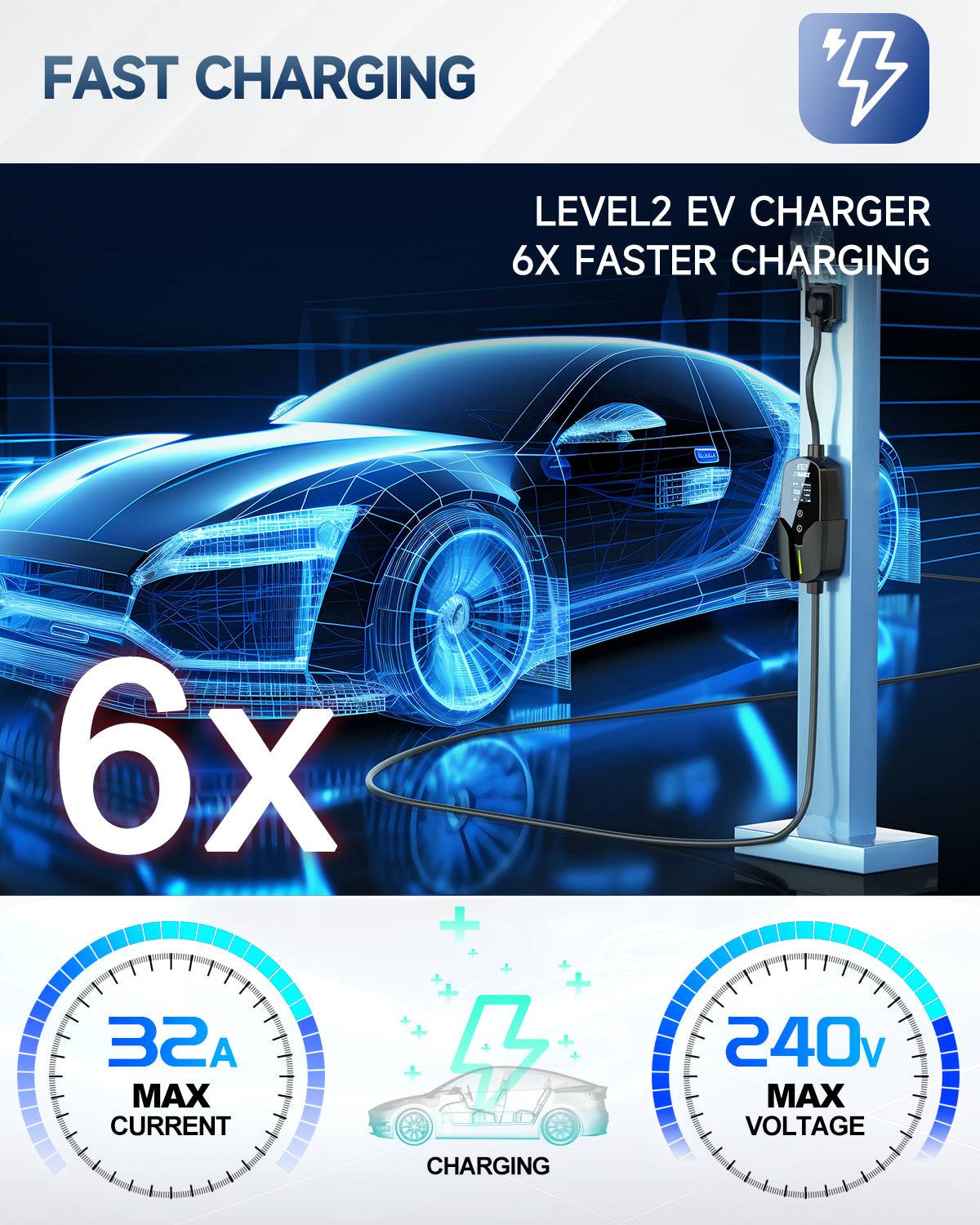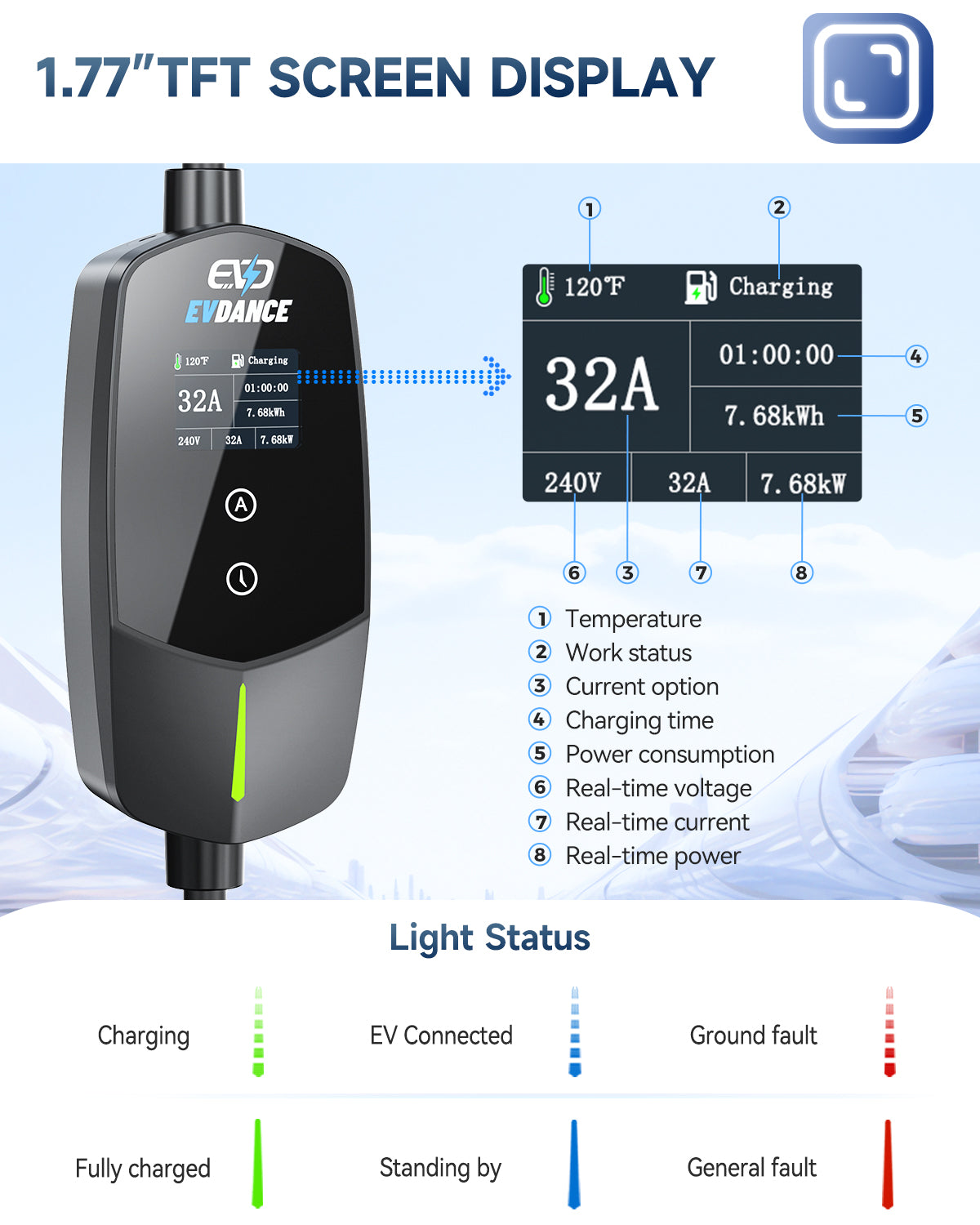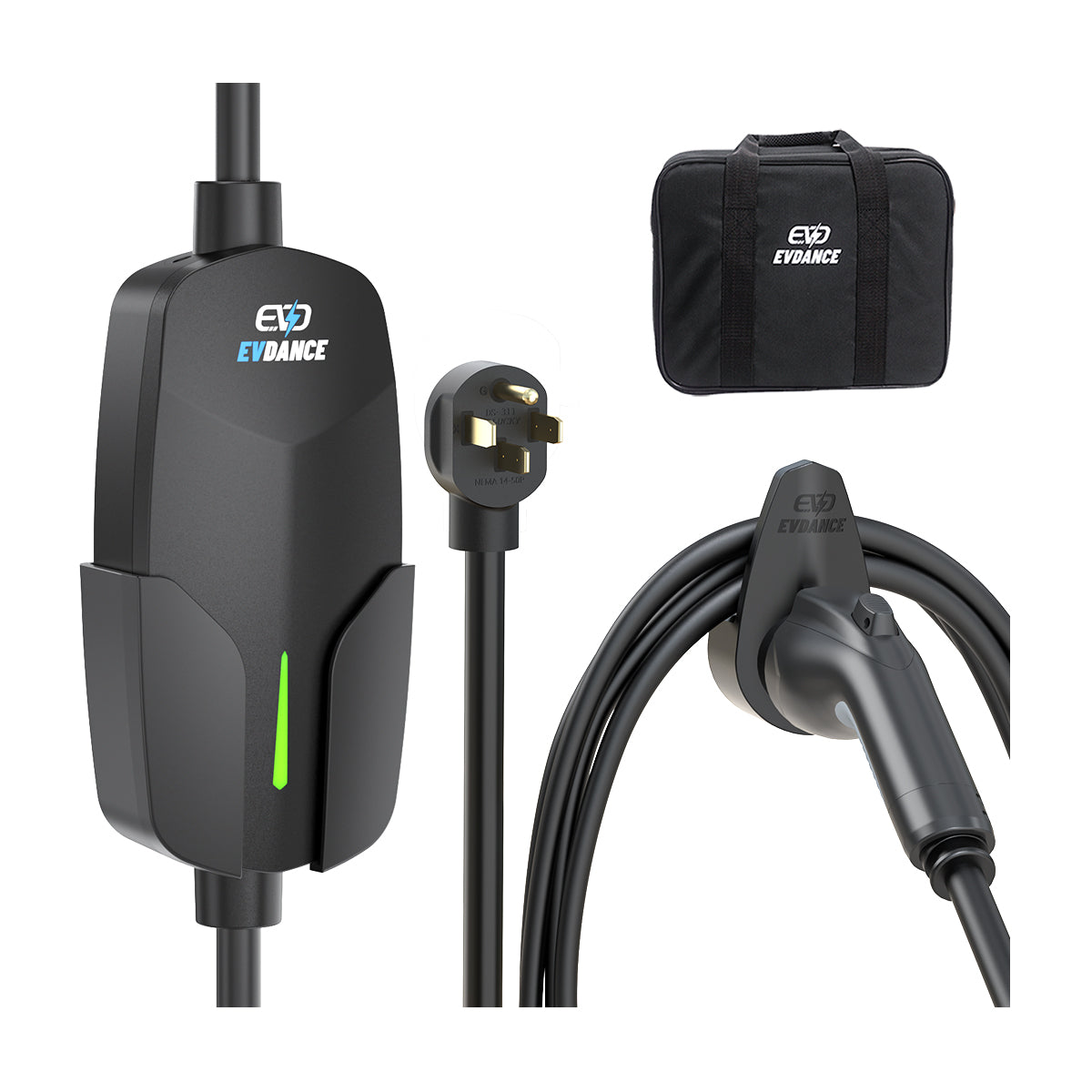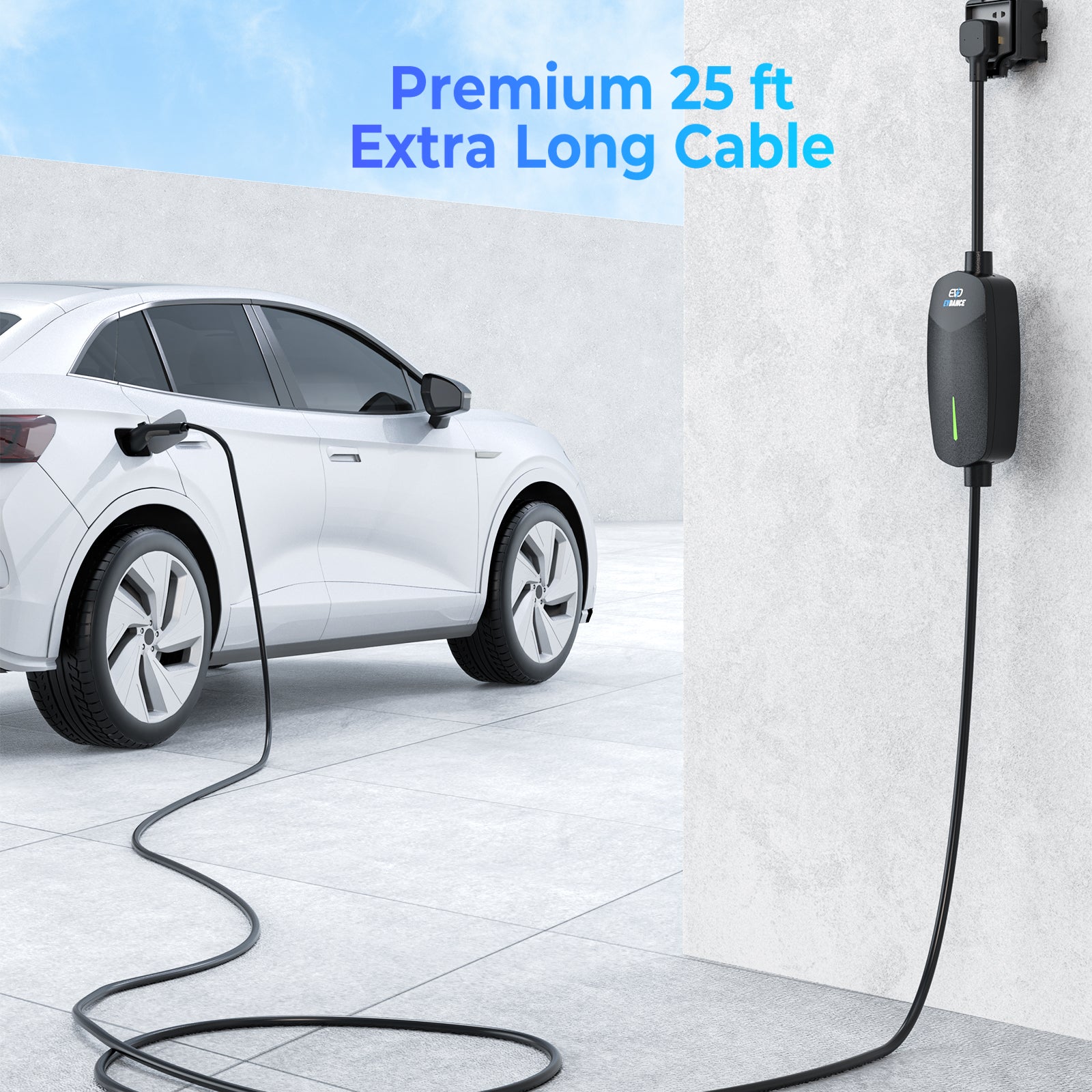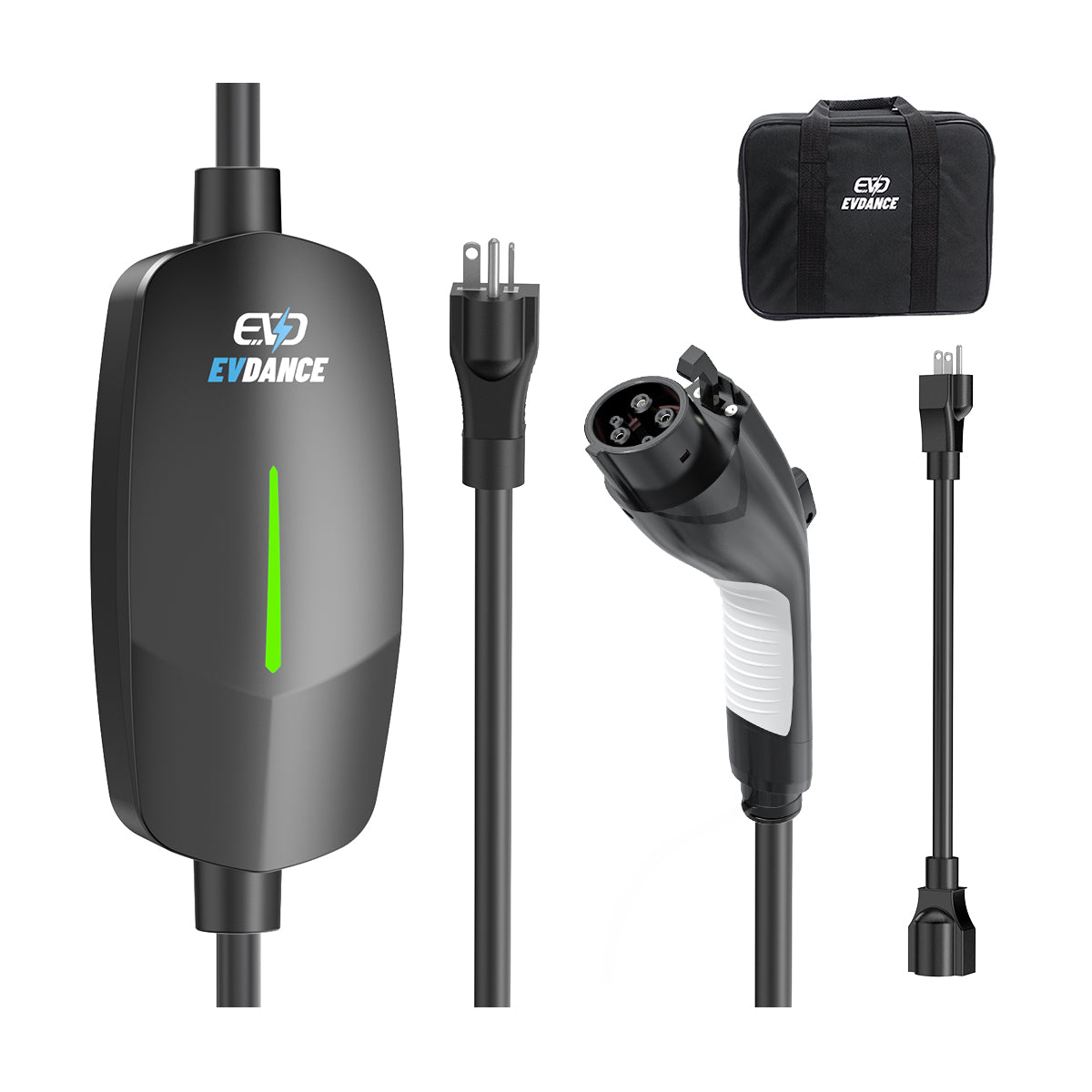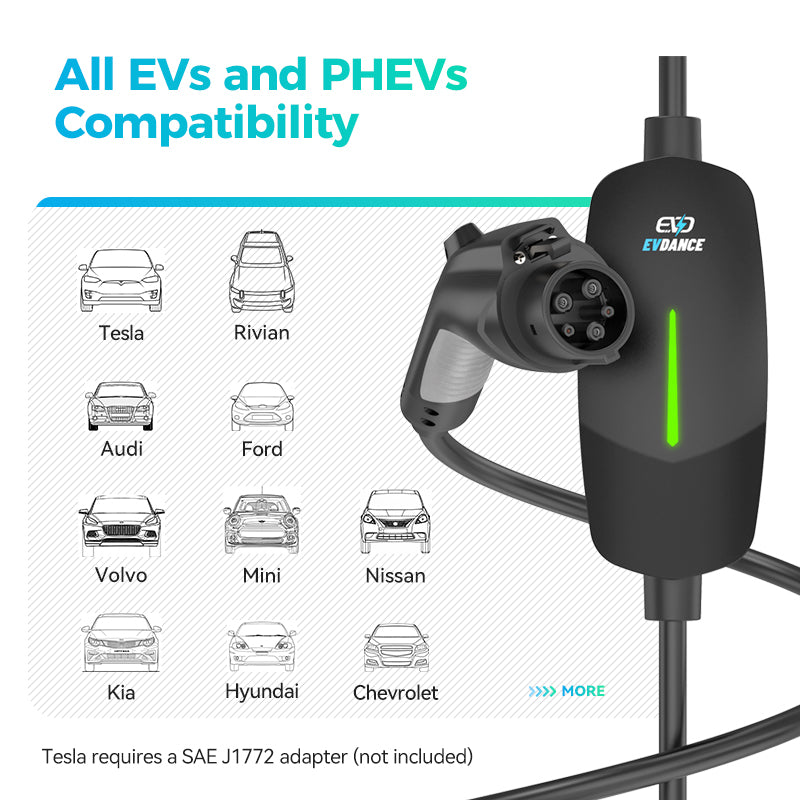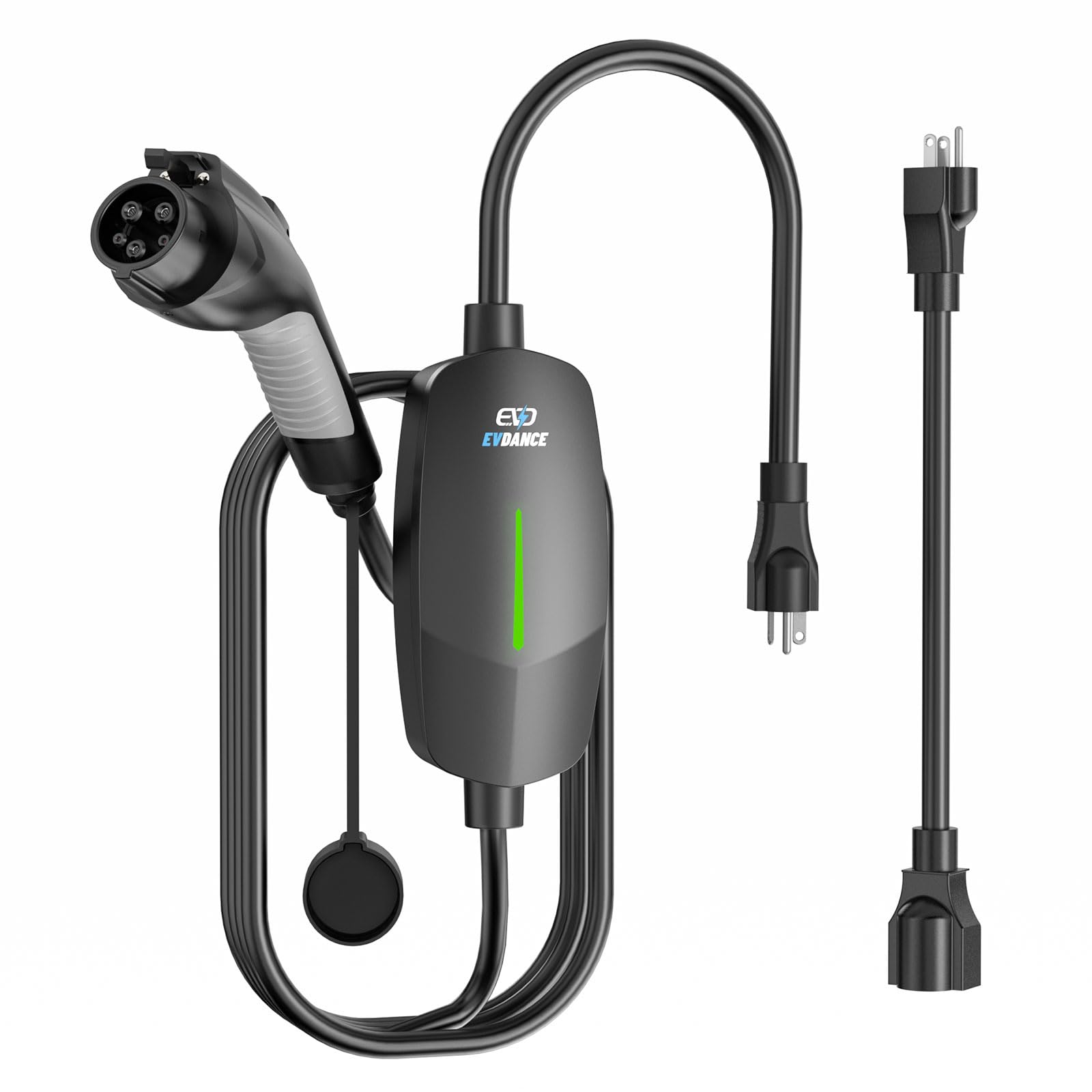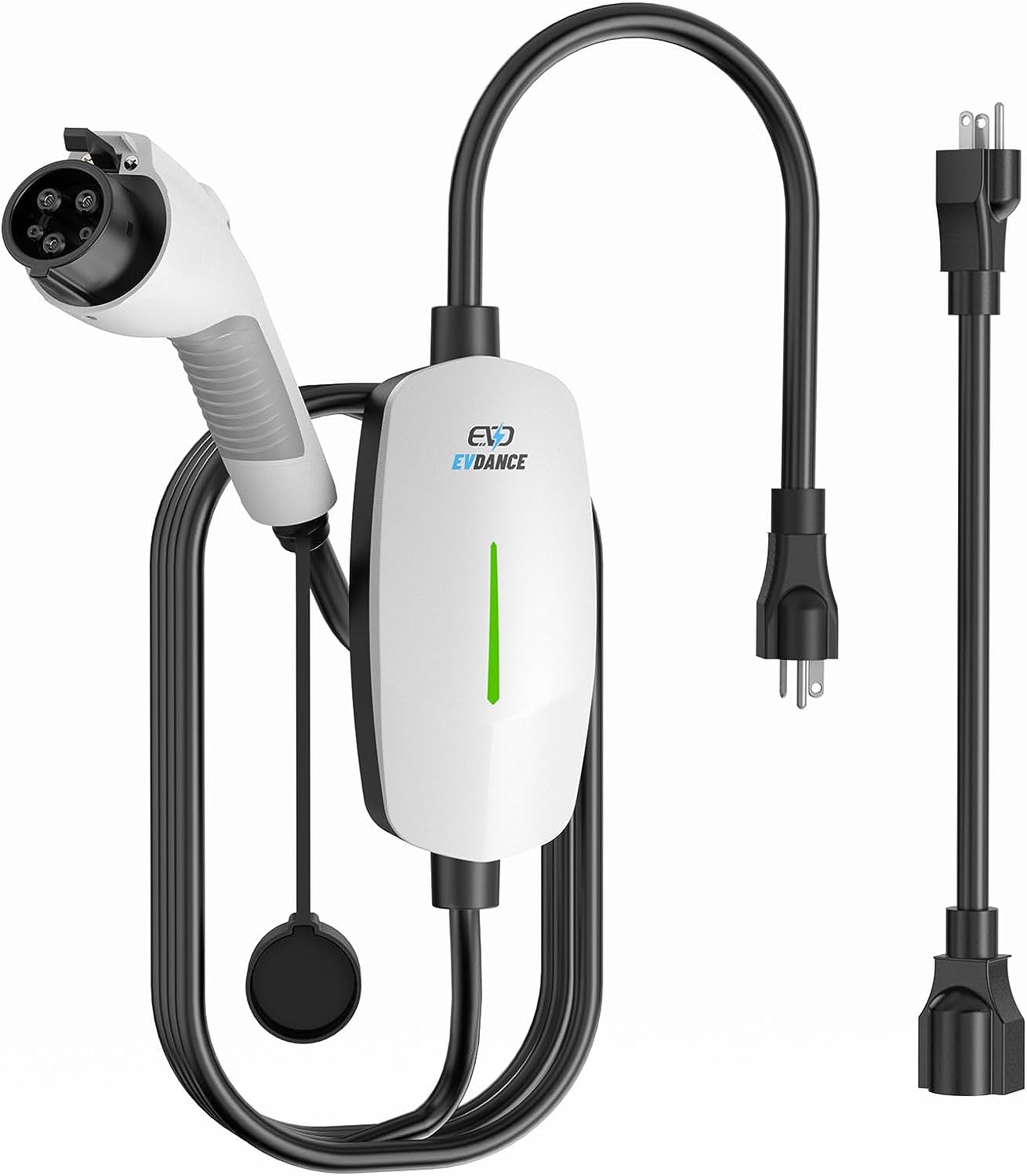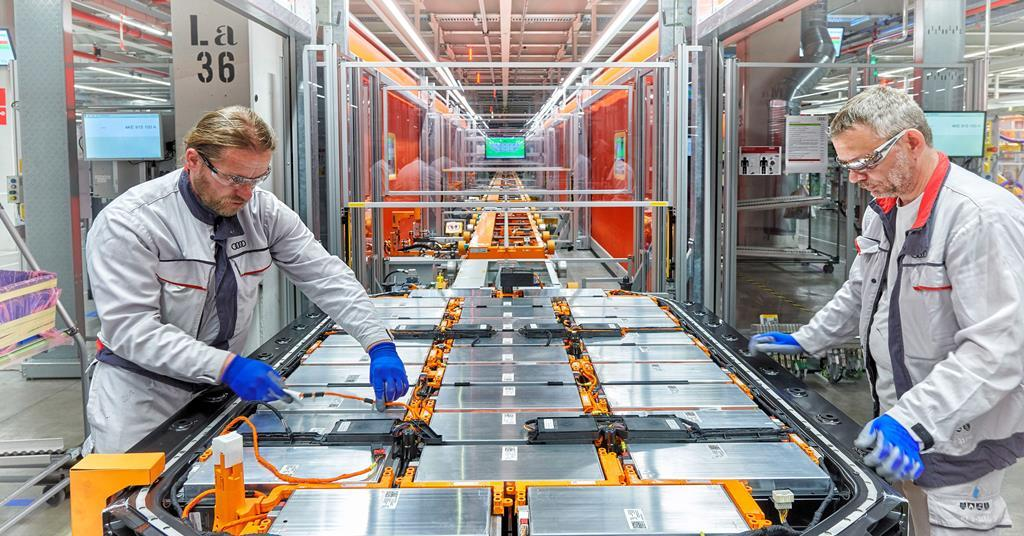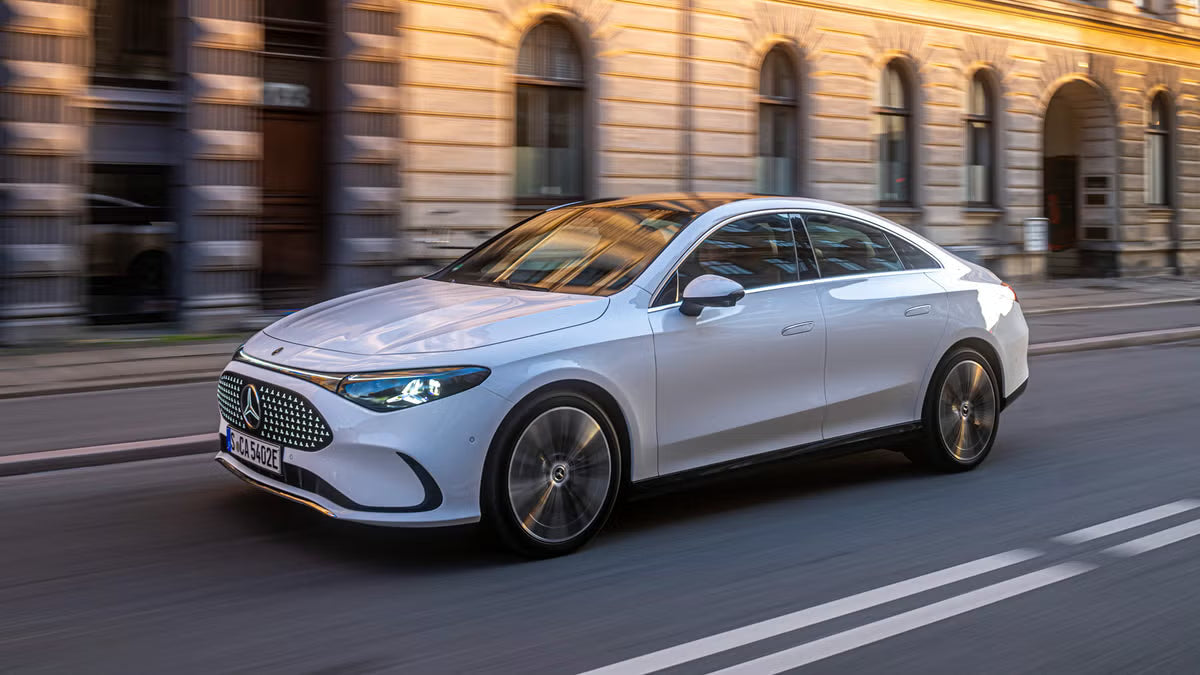FAQ
Trouvez les réponses aux questions sur les chargeurs EV portables.
Puis-je recharger mon véhicule électrique à la maison avec un chargeur J1772 ?
Oui, vous pouvez installer une borne de recharge J1772 de niveau 2 chez vous pour une recharge plus rapide des véhicules électriques. Un électricien peut installer la borne de recharge, offrant ainsi une option de recharge plus efficace qu’une prise domestique standard.
Quel chargeur électrique portable avec prise d'entrée CA dois-je choisir ?
Choisissez en fonction du type de prise que vous utilisez le plus souvent, généralement NEMA 5-15p est le plus largement applicable, mais NEMA 14-30p est également largement utilisé dans des régions comme la Californie.
Existe-t-il différents types de connecteurs ou de fiches J1772 ?
Bien que la norme J1772 spécifie la conception globale et les protocoles de communication, des variations dans la conception de la fiche peuvent exister. Cependant, la compatibilité fondamentale reste la même entre les véhicules électriques et les bornes de recharge adhérant à la norme J1772.
Puis-je utiliser un adaptateur pour charger mon VE avec un connecteur J1772 à partir d'une autre borne de recharge ?
Des adaptateurs peuvent être disponibles pour connecter votre véhicule électrique à différents types de bornes de recharge, mais la compatibilité et les vitesses de recharge peuvent varier. Il est important de vous assurer que l'adaptateur est adapté à votre modèle de VE et à la borne de recharge utilisée.
Les chargeurs J1772 sont-ils compatibles avec les normes de charge rapide ou de charge rapide CC ?
Face à la popularité croissante des véhicules électriques (VE), le développement des infrastructures de recharge devient crucial. Cet article présente cinq principaux types de chargeurs pour VE : les chargeurs de niveau 1 ,les chargeurs de niveau 2 , les chargeurs portables, les chargeurs domestiques et les bornes de recharge rapide CC. Examinons les caractéristiques et les fonctions de chaque type de chargeur.
Vous n'avez pas trouvé vos questions ?
Accédez à notre banque de questions d'assurance qualité pour plus de réponses !
Chargeur pour véhicules électriques : une solution fiable pour une recharge efficace et accessible des véhicules
Alors que les véhicules électriques (VE) gagnent en popularité dans le monde entier, la demande de solutions de recharge fiables et performantes augmente parallèlement. Les chargeurs pour VE constituent l'interface essentielle entre le véhicule et le réseau électrique, assurant un transfert d'électricité fluide, sûr et rapide vers la batterie. Qu'ils soient installés à domicile, au travail ou dans des lieux publics, un chargeur pour VE de haute qualité répond au besoin croissant d'options de recharge pratiques et flexibles. Grâce aux progrès technologiques, les chargeurs pour VE modernes sont conçus pour être compatibles avec une large gamme de modèles, offrant aux utilisateurs une tranquillité d'esprit, quelle que soit la marque ou la capacité de la batterie de leur véhicule. De plus, ces chargeurs intègrent des fonctions de sécurité, telles que la surveillance de la température et l'arrêt automatique, pour protéger à la fois le véhicule et le système électrique. Leurs capacités de charge rapide en courant continu (CC) et de niveau 1 permettent aux chargeurs de VE de répondre à divers besoins, de la recharge nocturne à domicile aux recharges rapides en déplacement. Par conséquent, investir dans un chargeur fiable est essentiel pour tout propriétaire de VE souhaitant optimiser le confort, l'efficacité et la sécurité de sa recharge.
Recharge flexible pour environnements divers
Les bornes de recharge pour véhicules électriques sont conçues pour s'adapter à divers environnements résidentiels et commerciaux. Pour de nombreux propriétaires de véhicules électriques, notamment ceux qui ne disposent pas de parking dédié ou d'un accès limité aux prises, la possibilité d'utiliser des bornes adaptables à différentes sources d'alimentation est essentielle. Des maisons individuelles aux immeubles d'appartements en passant par les parkings publics, les bornes de recharge pour véhicules électriques offrent des solutions flexibles qui garantissent l'accès à la recharge, quelle que soit la situation de stationnement.
Infrastructure de recharge rentable
L'un des principaux avantages des bornes de recharge pour véhicules électriques modernes réside dans leur évolutivité et leur rentabilité. Qu'il s'agisse de moderniser des panneaux électriques existants ou d'installer de nouveaux circuits, ces bornes s'intègrent avec un minimum de perturbations et de coûts. Elles prennent en charge plusieurs niveaux de tension et plages d'ampérage, permettant aux utilisateurs de trouver le juste équilibre entre vitesse de charge et coûts d'installation. Cette flexibilité fait des bornes de recharge pour véhicules électriques un investissement judicieux pour les particuliers, les entreprises et les gestionnaires immobiliers.
Portabilité et compatibilité entre les réseaux
Les bornes de recharge pour véhicules électriques actuelles sont souvent compatibles avec de nombreux réseaux et normes de recharge, permettant aux propriétaires de recharger facilement leur véhicule dans de nombreux endroits. Les bornes de recharge portables peuvent être emportées en voyage ou en cas d'urgence, se connectant à des prises standard pour une alimentation continue. Leur compatibilité universelle garantit aux conducteurs de véhicules électriques une recharge fiable et efficace où qu'ils se garent, améliorant ainsi le confort et réduisant considérablement le souci de l'autonomie. De plus, de nombreuses bornes de recharge offrent désormais des options de connectivité intelligente, permettant une surveillance et un contrôle à distance via des applications mobiles pour une expérience utilisateur fluide.




